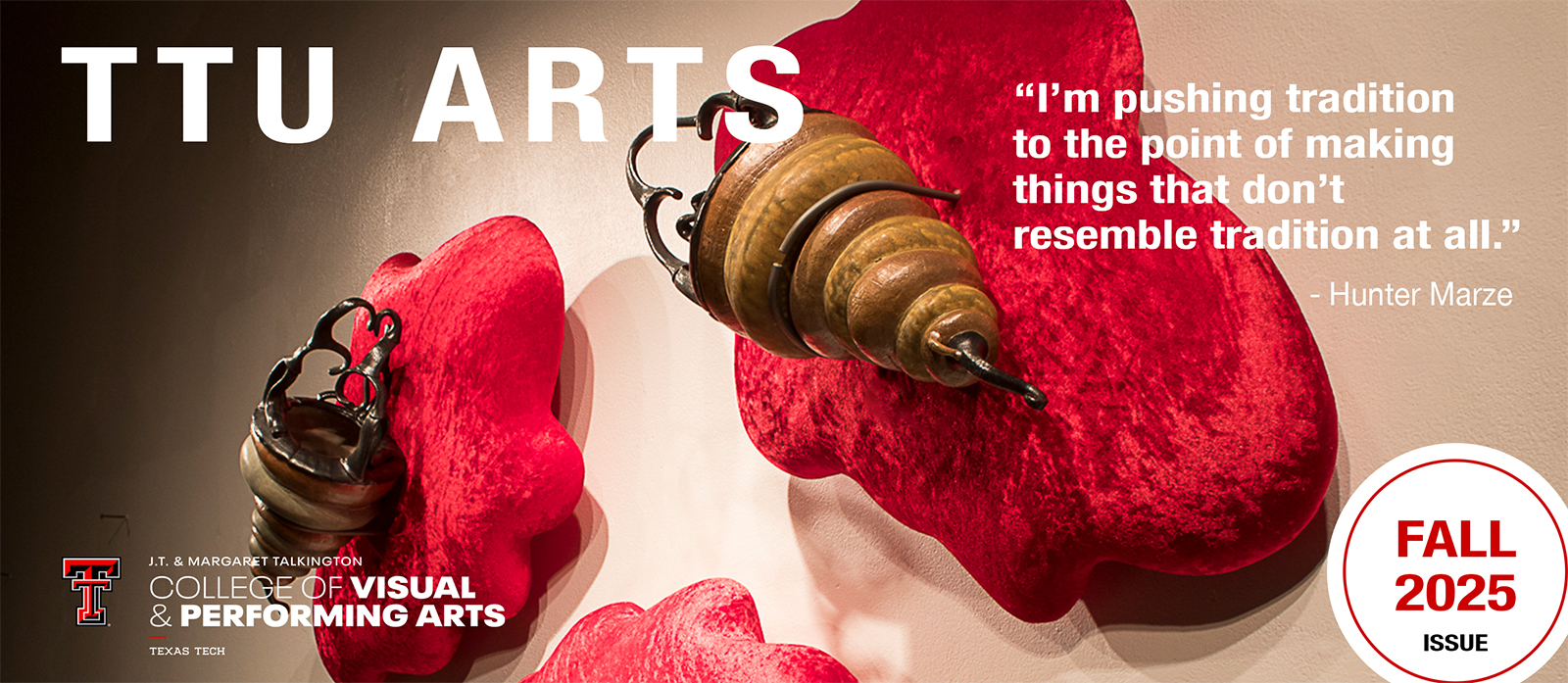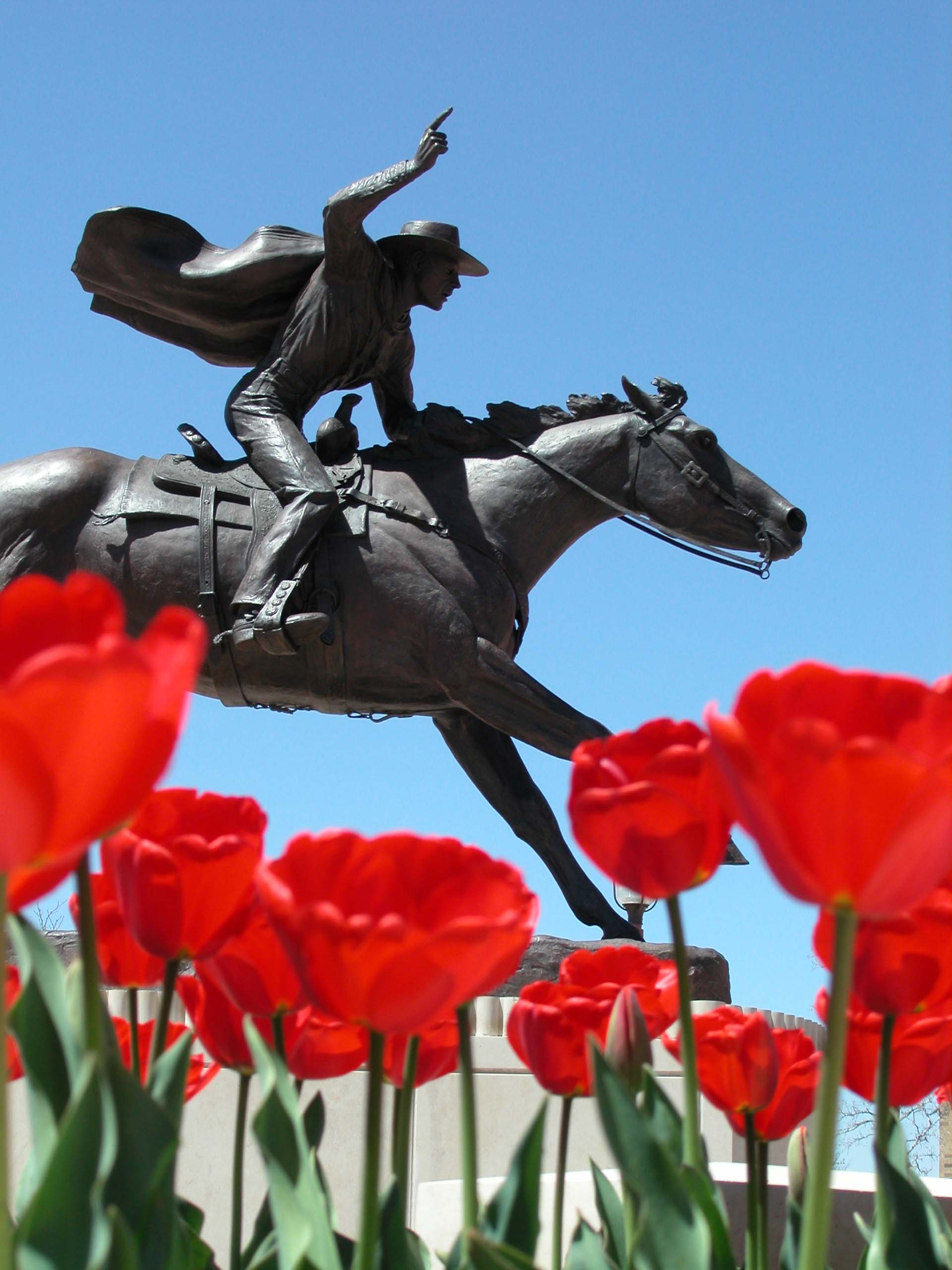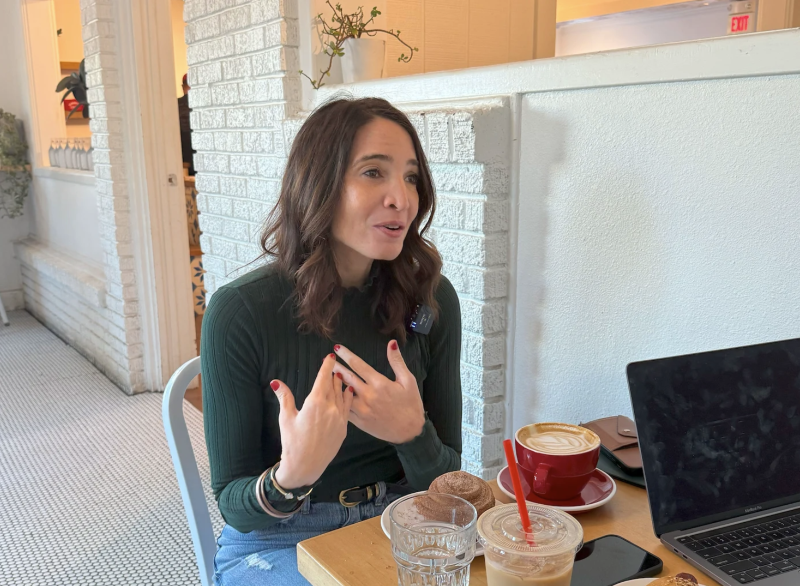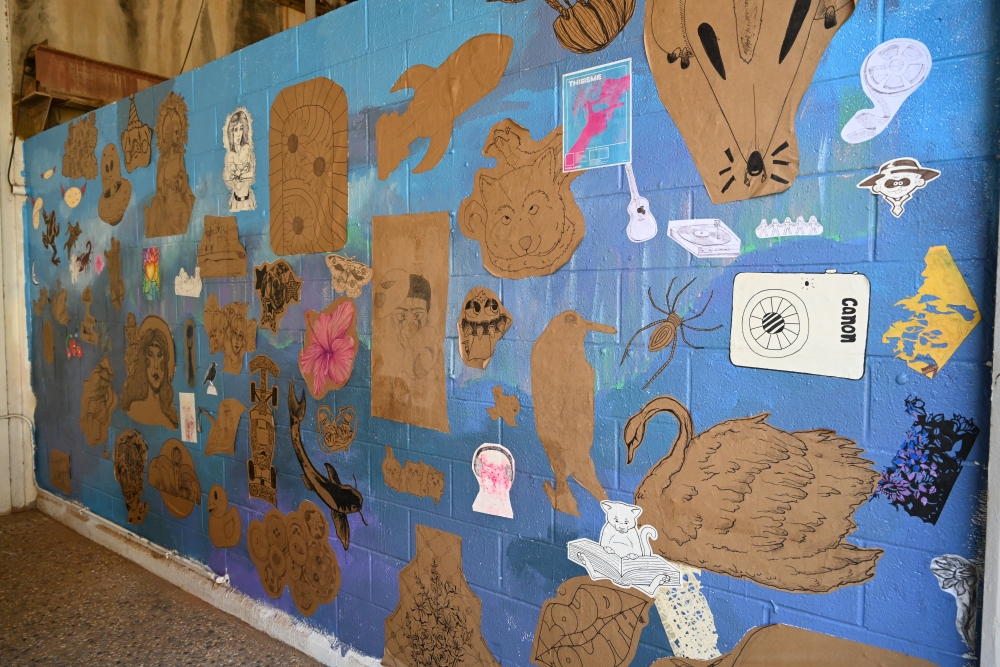View Print Version of TTU Arts Newsletter
A NOTE FROM THE DEAN
As we celebrate another inspiring semester in the J.T. & Margaret Talkington College of Visual & Performing Arts, I am reminded of the extraordinary creativity, scholarship, and generosity that define our community. Our faculty continue to shine—honoring long-standing legacies, earning global recognition, and advancing innovative work that elevates the arts at Texas Tech.
This fall also marks an exciting milestone for the Department of Interdisciplinary Arts as we welcome the first cohort of the Ph.D. in Arts Administration track, a program already shaping future scholars and cultural leaders. Across our schools, students and faculty alike are pushing boundaries—whether through bold visual explorations in Art, groundbreaking research and performances in Music, or history-making student leadership and productions in Theatre & Dance.
We are equally proud to share the accomplishments of our alumni, whose achievements reflect the strength of their education commitment to the arts. And as always, we are grateful to our supporters who ensure our students and programs continue to thrive. Thank you for being part of our vibrant creative community. I look forward to all we will continue to build together.
Dr. Martin Camacho, Dean, J.T. & Margaret Talkington College of Visual & Performing Arts
FACULTY NEWS
Bill Gelber
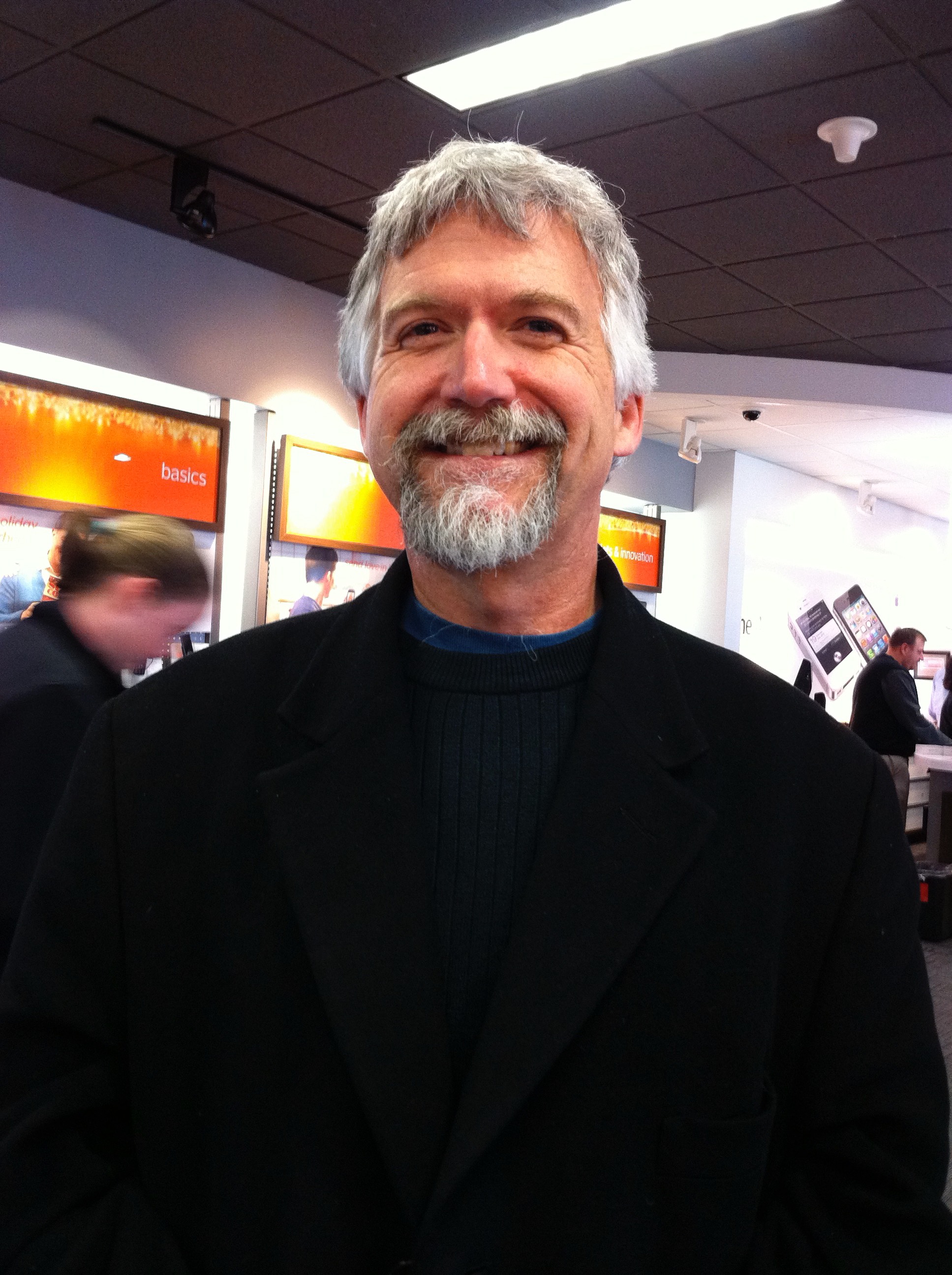
Photo of Dr. Bill Gelber
Dr. Bill Gelber, a distinguished Professor of Acting, Directing, and Pedagogy at Texas Tech University, is retiring after 24 years of dedicated service. Known for his innovative teaching, artistic direction, and lifelong commitment to theatre education, Gelber has left a profound impact on the TTU School of Theatre & Dance and the countless students he has mentored.
Gelber began his theatre journey at age five and started directing around 40 years ago. Since joining Texas Tech in 2002, he has taught a wide range of courses—from acting and directing to Shakespeare, Brecht, and Beckett—and directed numerous productions, including The Diary of Anne Frank. He is also a prolific scholar, publishing two recent books and presenting at international conferences.
This semester, Gelber brought one of his longtime passions to the stage, directing Hamlet, a play he has studied and performed throughout his career. Students and alumni praise his influence, highlighting his mentorship, encouragement, and lasting impact on their personal and professional lives.
Though retiring from teaching, Gelber continues to contribute to theatre scholarship, currently working on a book about British playwright Harold Pinter. His legacy at Texas Tech—through both his creative and educational work—will continue to shape the theatre community for years to come.
Susan Brumfield
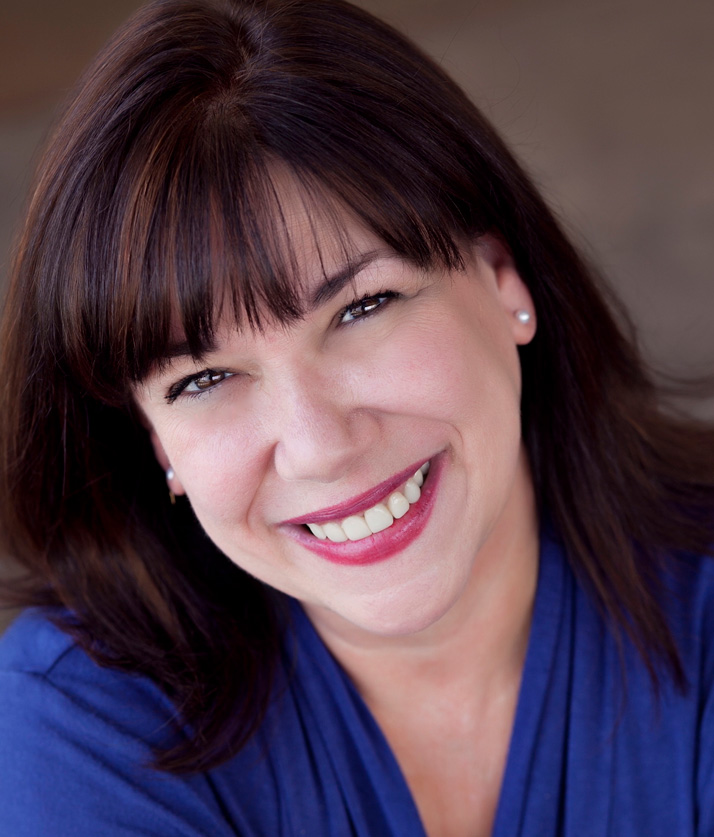
Photo of Dr. Susan Brumfield
Dr. Susan Brumfield, Professor of Music Education, was awarded Honorary Membership in the International Kodaly Society, by invitation of the IKS Board of Directors. The award is in recognition of her “outstanding merit as a teacher of teachers, youth and young adults, a continuously published author, composer and arranger, and visionary focus on excellence through [her] summer courses and graduate student mentorship.”
Yunhao Zhang
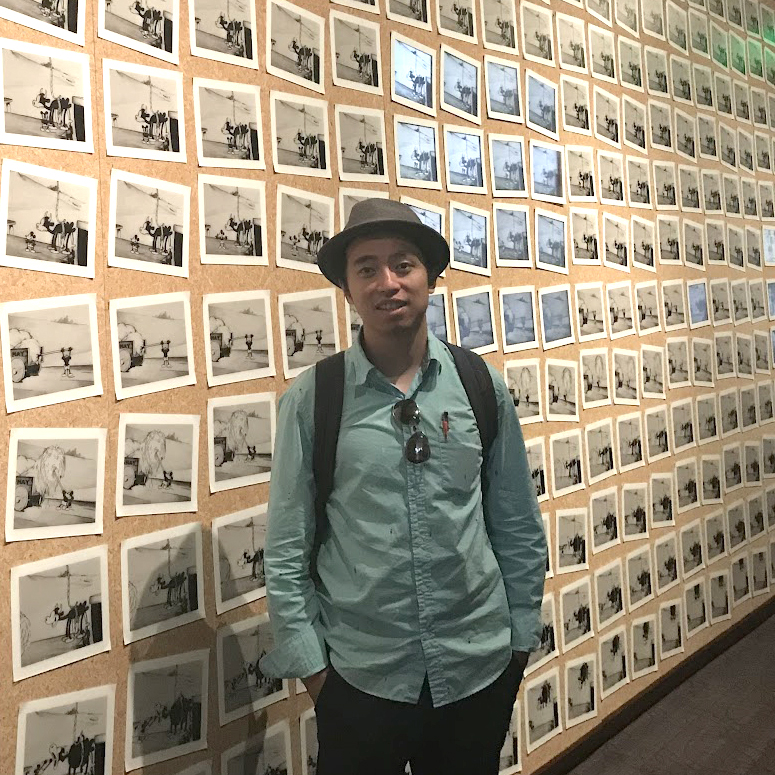
Photo of Yunhao Zhang
Assistant Professor of Practice, Director & Senior Storyboard Artist, Yunhao Zhang is an artist whose clients include Disney, Blizzard Entertainment, and Alcon Entertainment. A member of the Television Academy (Emmy Awards) and the Annie Awards juries, he has spent the past decade contributing to numerous high-profile projects such as The Garfield Movie, Monsters at Work, Moon Girl and Devil Dinosaur, StarCraft II, World of Warcraft, etc.
Currently, Zhang is developing his independent animated short The Bust, which follows the life of a basketball prodigy coping with the aftermath of a career-ending injury. In addition, he is leading several interdisciplinary collaborations with the School of Music and the School of Language and Literature, exploring new approaches to storytelling and visual performance in animation.
Heather Warren-Crow
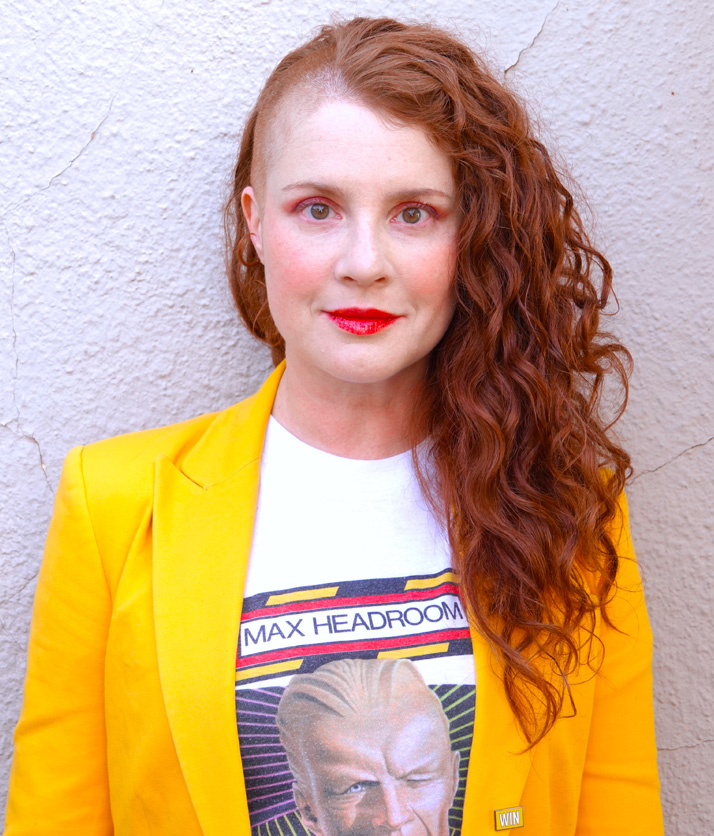
Photo of Dr. Heather Warren Crow
Dr. Heather Warren-Crow traveled to Costa Rica last summer with TTU Study Abroad students and faculty to learn the principles of environmental sustainability. Through the practice of permaculture, Warren-Crow embarked on new research to cultivate ecological approaches to listening to the world. She hopes to apply these ideas to educational leadership and program community building.
DONOR SPOTLIGHT
CONSIDER A YEAR-END GIFT TO TTU ARTS
As the year draws to a close, we invite you to make a lasting impact on the arts by supporting TCVPA. Your generosity helps us provide exceptional opportunities for students and faculty to create, perform, and inspire. You can make a gift directly to the Visual & Performing Arts Fund for Excellence, which supports innovative programs and initiatives across the college.
To explore other ways to give, please contact Robin Phillips, Senior Director of Development for TCVPA, using the contact information below.
Together, we can ensure the arts continue to thrive for generations to come.
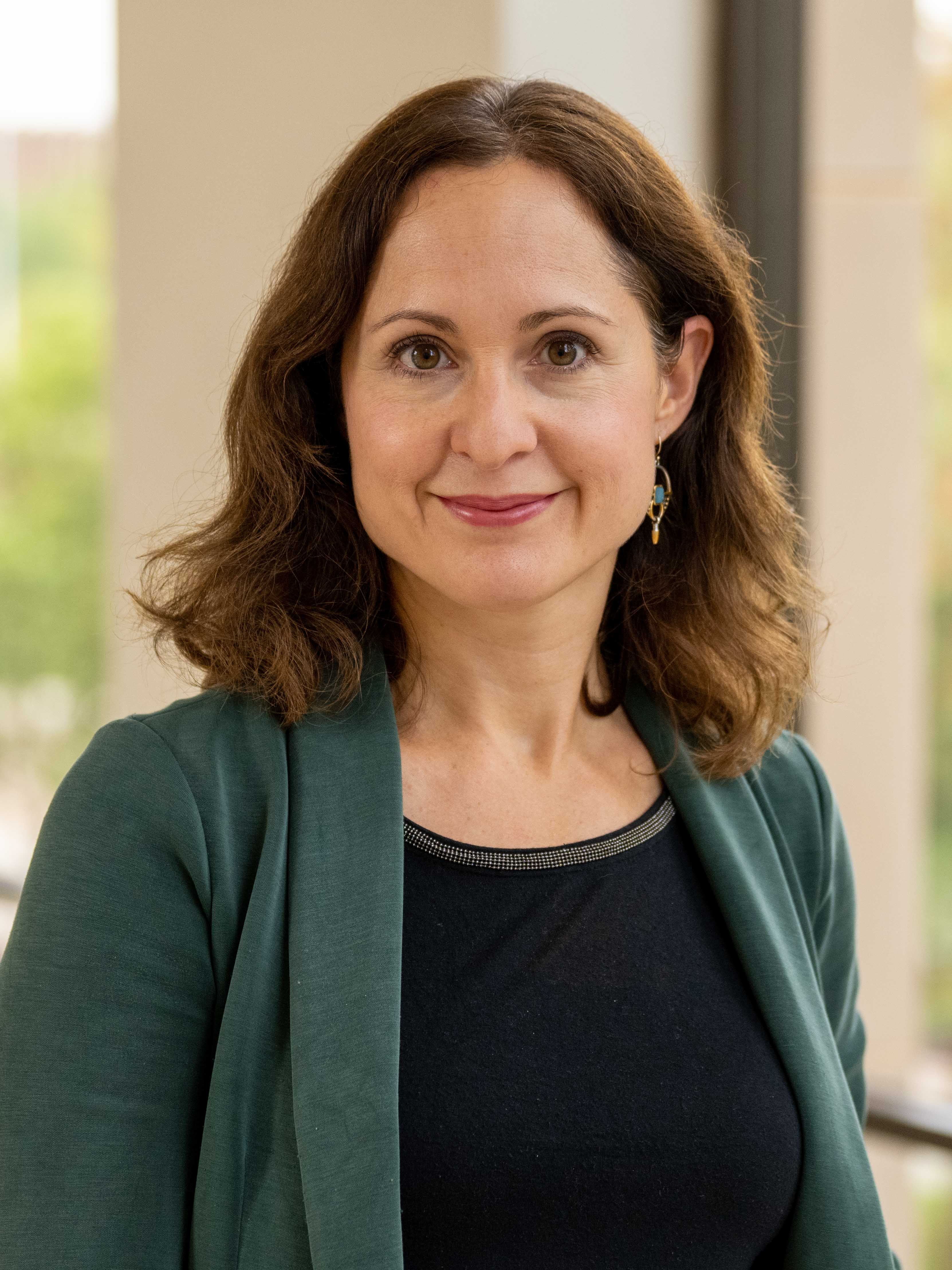 Robin Phillips
Robin Phillips
Senior Director of Development
robin.phillips@ttu.edu
806.834.7353
Office of the Dean, TCVPA, Texas Tech University
Box 45060, Lubbock, TX 79409
Leave Your Mark on the Arts
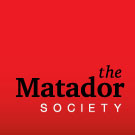 The arts shape how we see the world, and at Texas Tech, your legacy can help ensure
that creativity continues to thrive for generations to come.
The arts shape how we see the world, and at Texas Tech, your legacy can help ensure
that creativity continues to thrive for generations to come.
Through planned giving, supporters of the J.T. & Margaret Talkington College of Visual & Performing Arts can make a lasting impact on what matters most to them:
• Scholarships that help emerging artists pursue their passions
• Endowments that strengthen programs in music, theatre, dance, design, and art
• Facilities and equipment funds that sustain creative spaces and innovation
When you include TCVPA in your estate plans, you also become part of The Matador Society, a community of Red Raiders whose generosity helps secure the university’s artistic and educational future.
Your planned gift—large or small—builds opportunities for students, celebrates artistic excellence, and keeps the creative spirit alive at Texas Tech.
DEPARTMENT OF INTERDISCIPLINARY ARTS
THE NEXT GENERATION OF ARTS LEADERS
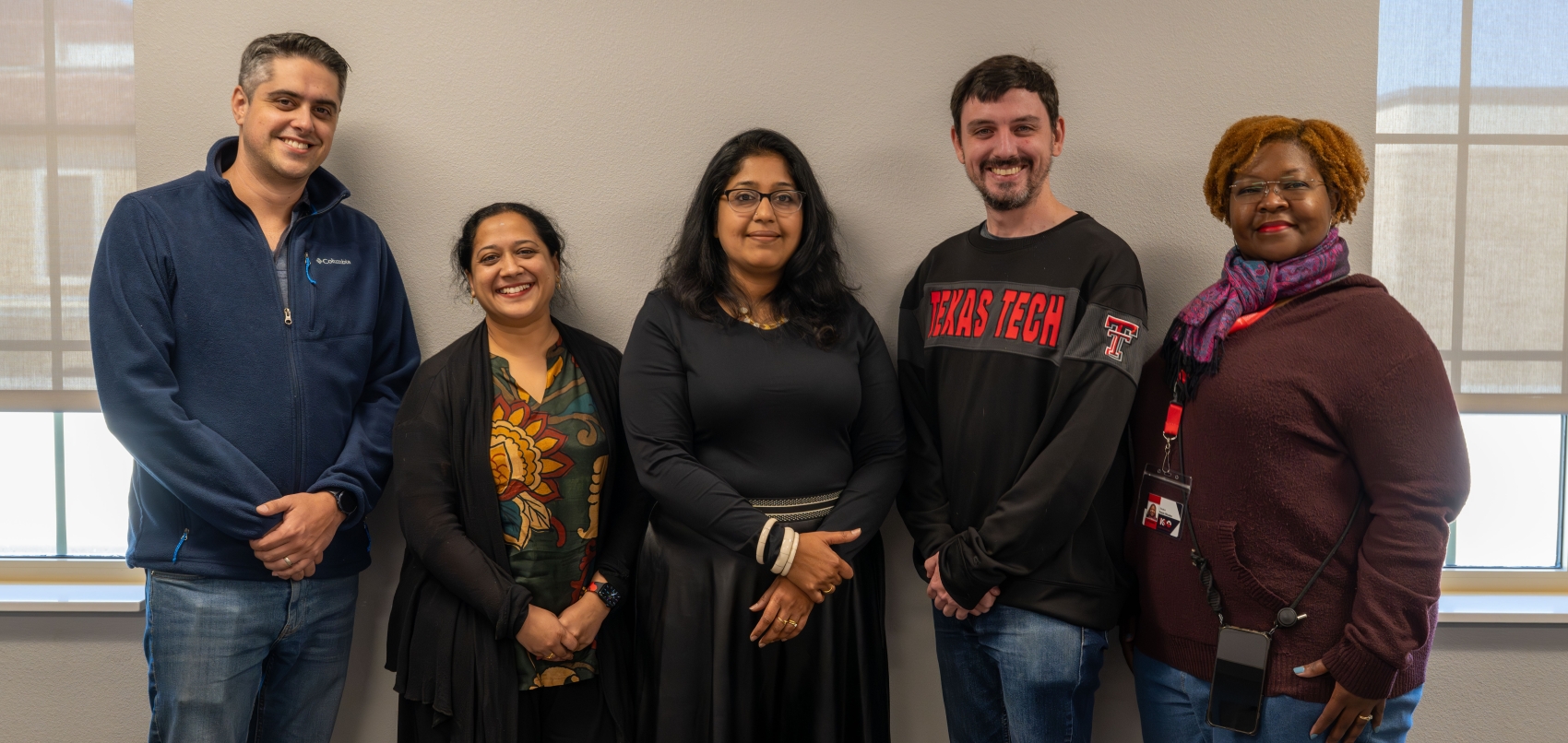
The Department of Interdisciplinary Arts (DIA) was established in 2023 to support our interdisciplinary degree programs and for student and faculty collaborations crossing traditional disciplinary boundaries. Graduates of our programs find careers in creative arts production, academic scholarship, non-profit administration, arts criticism, and many more fields. We are excited to see the recently launched Arts Administration track of the Fine Arts Doctoral Program (FADP), overseen by the DIA, join the existing doctoral tracks at TCVPA. Our inaugural cohort came on board in Fall 2025, and we look forward to their contributions to the academic community.
We created the FADP Arts Administration track in acknowledgement of the rapidly growing interdisciplinary area of cultural administration and policy. This is in addition to the increasing need for top-of-class, cross-disciplinary doctoral programs combining scholarly study with field-relevant insights. With the launch of the new track, we are now one of four arts administration doctoral programs in the nation. Our unique curriculum allows students the flexibility to take coursework not just in core domains but also within allied fields such as business management and public policy. Our emphasis on academic rigor and field-relevance offers opportunities to learn from top scholars as well as industry experts.
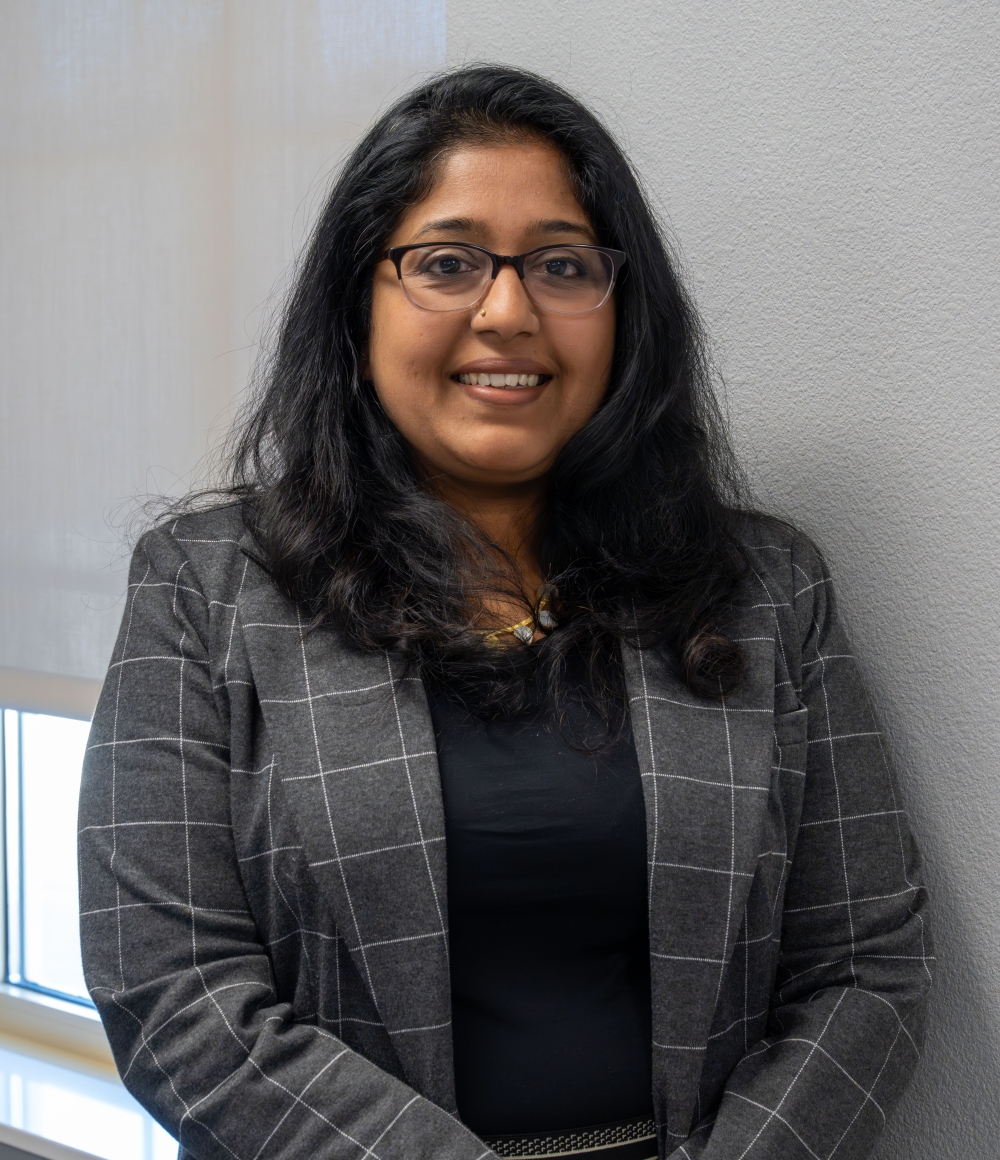 Dr. Divya Janardhan is an Assistant Professor of Arts Administration, Management, and Advocacy and Coordinator
for the FADP Arts Administration track which she helped design and launch in Fall
2025. Her research has earned recognition from international forums in the realm of
arts management and policy including AEEE, AIMAC, ACEI, and STP&A, and she serves
on editorial boards, conference boards, and advisory panels globally. She brings her
interdisciplinary research capacities in arts management and cultural policy, and
her professional and pedagogical expertise in strategic planning, marketing, and case
teaching methodology to the new track and aspires to prepare scholars to explore research
frontiers and tackle real-world problems.
Dr. Divya Janardhan is an Assistant Professor of Arts Administration, Management, and Advocacy and Coordinator
for the FADP Arts Administration track which she helped design and launch in Fall
2025. Her research has earned recognition from international forums in the realm of
arts management and policy including AEEE, AIMAC, ACEI, and STP&A, and she serves
on editorial boards, conference boards, and advisory panels globally. She brings her
interdisciplinary research capacities in arts management and cultural policy, and
her professional and pedagogical expertise in strategic planning, marketing, and case
teaching methodology to the new track and aspires to prepare scholars to explore research
frontiers and tackle real-world problems.
THE FIRST FADP COHORT
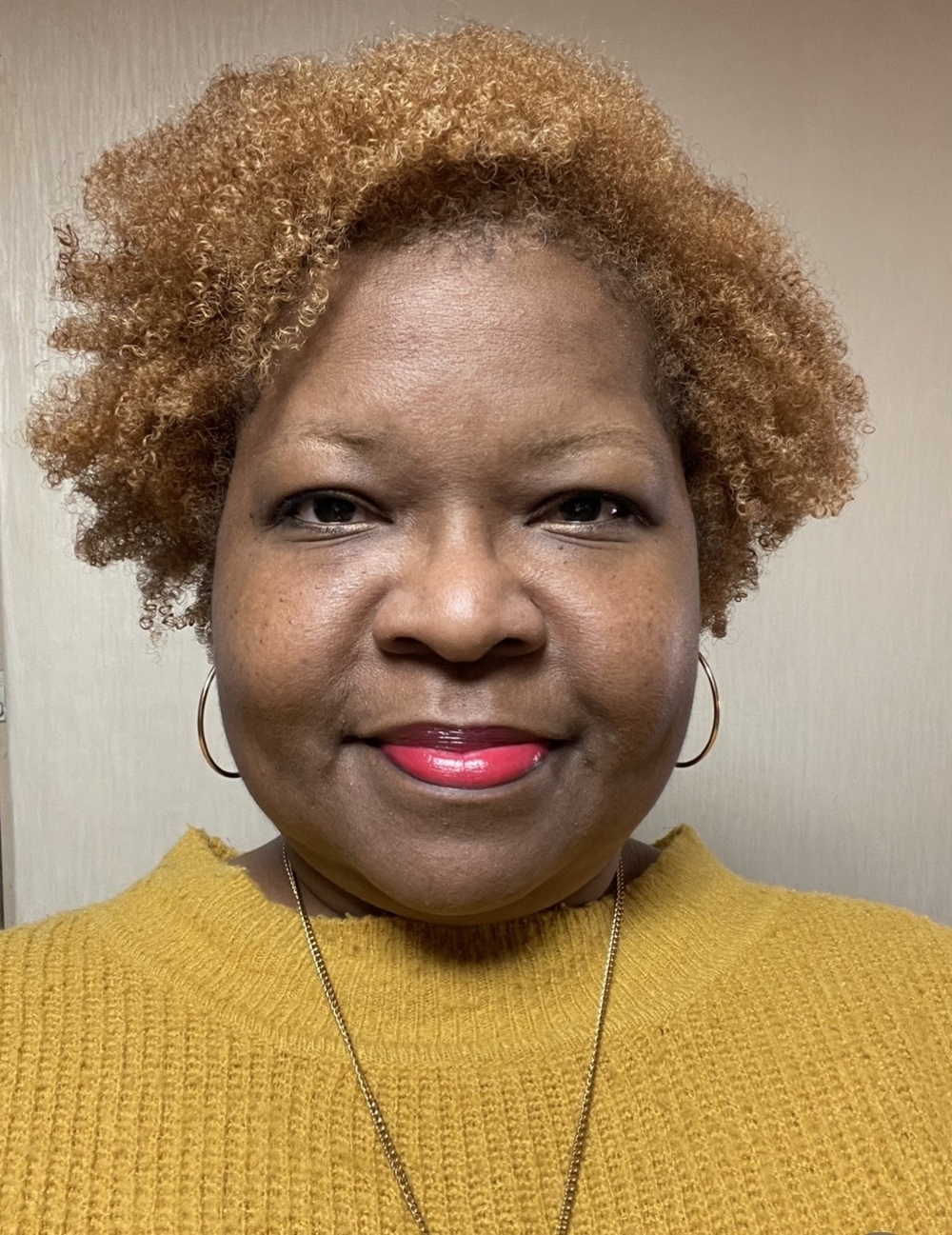 Robin Rhodes
Robin Rhodes
Hometown: Nashville, TN
I chose the Arts Administration track of TTU’s Fine Arts Doctoral Program because I want to take everything I love about dance, faith, and community to build something that lasts. Right now, the curriculum has me delving into the behind-the-scenes side of arts organizations’ leadership, strategy, and systems, so the mission actually works. This degree is already helping me shape my faith-based dance nonprofit organization, Scrub Bottom Dance, as a creative haven for adults overlooked in traditional dance spaces. One of my recent favorite moments was co-authoring an article on dance leadership with Dr. Ali Duffy that was published in a special issue of Research in Dance Education. I am also developing a presentation for the 2026 National Dance Education Organization conference on Decolonizing Sacred Dance, a project that brings together my research, practice, community work, and faith in a powerful way.
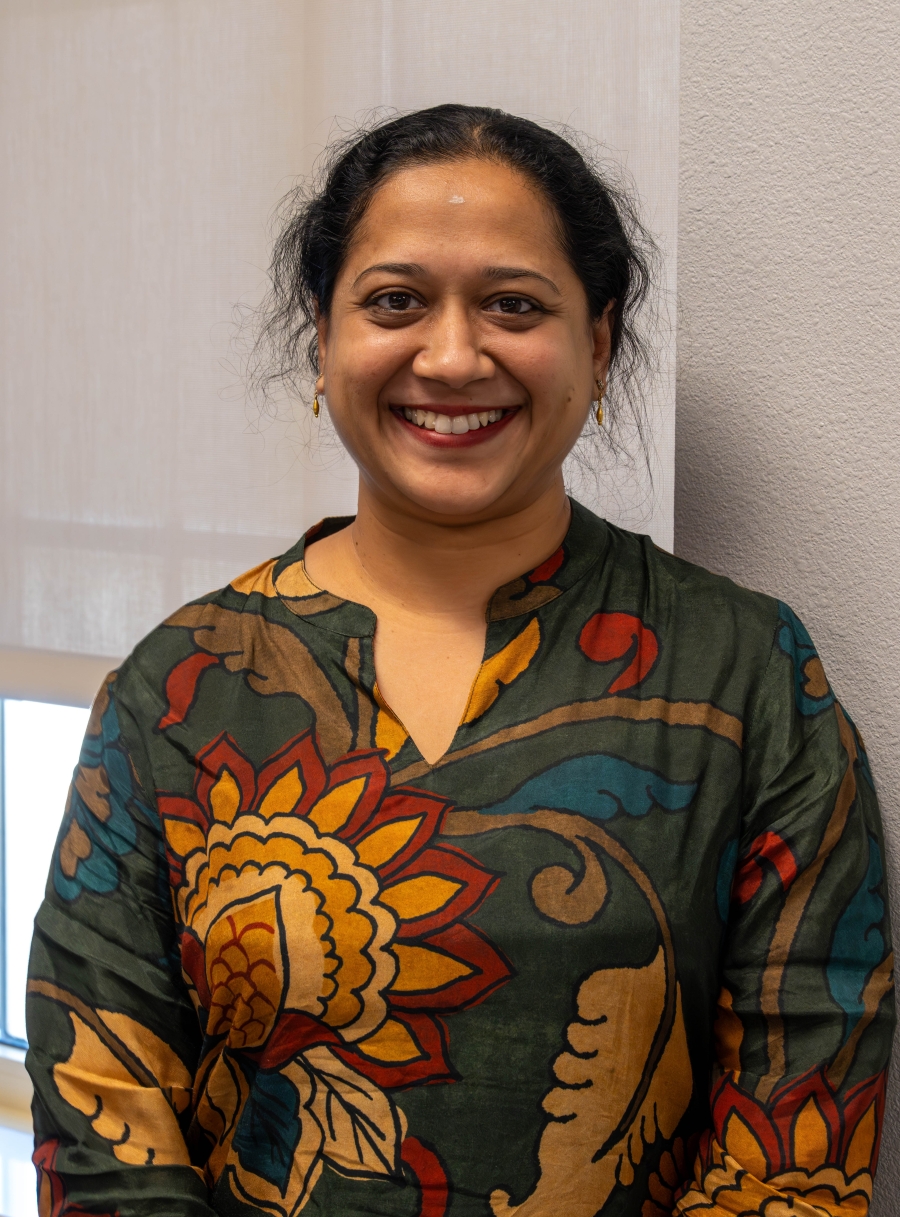 Samyuktha Punthambekar
Samyuktha Punthambekar
Hometown: Bengaluru, India/ Ottawa, Canada
I chose the Arts Administration track because I am deeply drawn to the interdisciplinarity of dance, arts education, and cultural policy. I am very excited to be part of Texas Tech University and to learn from some of the most knowledgeable professors in areas such as marketing, nonprofit management, and understanding the complexities of scholarly research. As an Indo-Canadian artist born and raised in Bengaluru, India, I graduated from the Kalakshetra Foundation, the country’s premier institution for Bharatanatyam training. Having moved from Ottawa, Canada to Lubbock, I am the first international student in my cohort. As a Bharatanatyam artist with over 25 years of professional experience, I have also worked as an arts educator, manager, and cultural policy specialist. My career includes raising over $500,000 in grants and serving with both Federal and Provincial Governments in Canada. Now in Lubbock, I founded Kalasadhana Dance Academy, the city’s first Bharatanatyam school offering holistic Kalakshetra-style training.
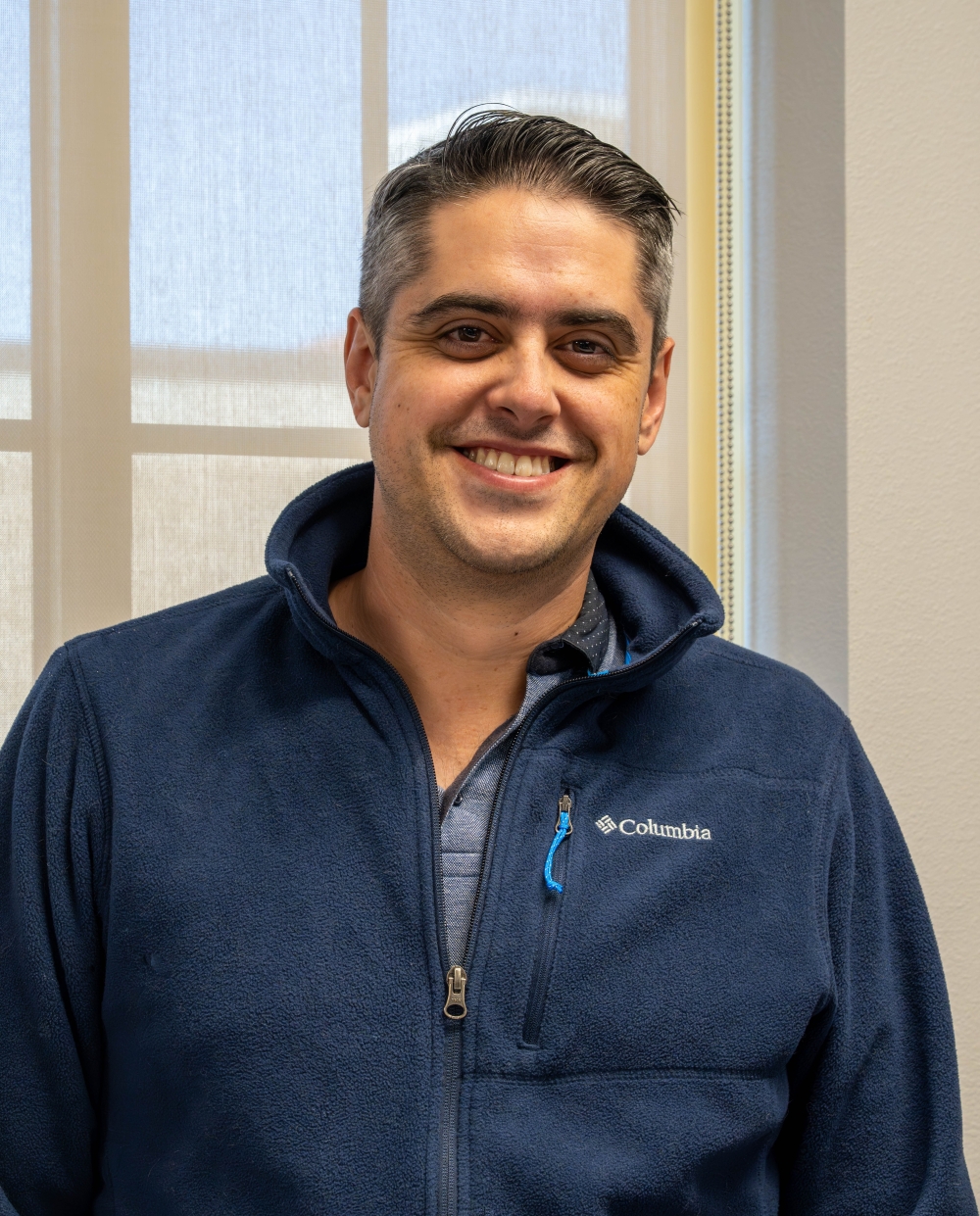 Tanner Scarlato
Tanner Scarlato
Hometown: Sugar Land, TX
I chose the PhD Arts Administration program because of my passion to support and advocate for the arts in communities. This program provides the perfect opportunity to study marketing and funding for the arts in depth. It also provides a unique opportunity for me to conduct research that could help provide different perspectives to arts marketing and funding. Additionally, because I want to work in higher education, I would like to bring arts administration curriculum to another higher education institution. The most exciting thing I’ve learned from this program is that arts marketing requires some of the most creative and innovative marketing strategies. This degree will make a significant impact on my career in that I will be able to teach arts administration at another institution and spread the knowledge.
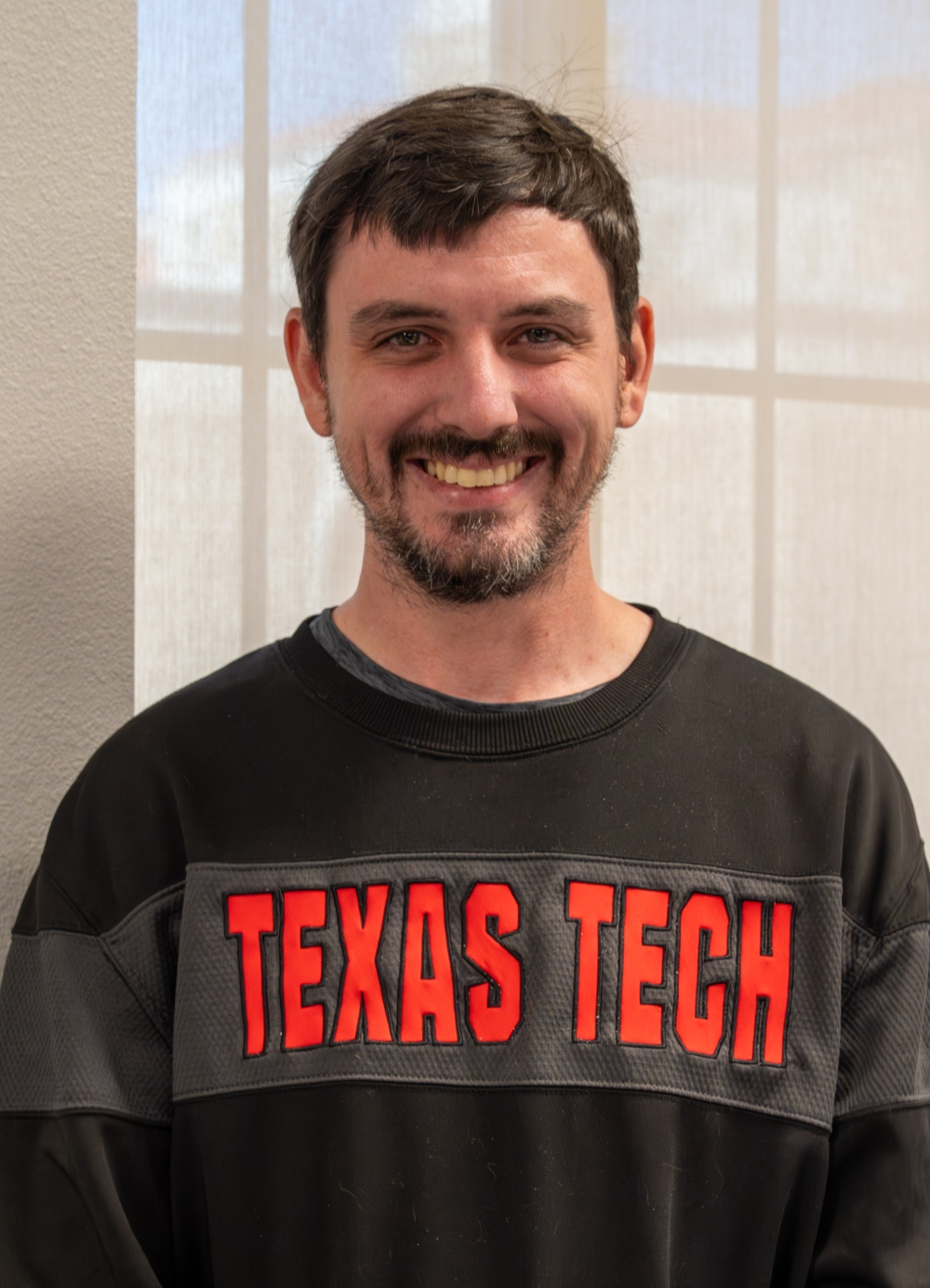 Joshua Sandow
Joshua Sandow
Hometown: Dallas, TX
I chose the Arts Admin track because I have aspirations to be a Fine Arts Director for a public school district. I have been a band director for the past 9 years and want to support all the arts and give all students equal opportunities and experiences, regardless of background or circumstances. The most exciting thing I have learned so far is the different aspects of brand/image in terms of marketing and how it impacts public perception on the organization. I see this degree shaping my career by giving me a unique perspective and skillset that is not present for most fine arts directors currently in the profession, ultimately allowing for me to “think-outside-the-box” and come up with innovative ways to further the pursuit of equitable arts education. My dream is to make it so that there will not be any financial barriers to participating in the arts in K-12 education.
SCHOOL OF ART
DISRUPTING THE HORIZON: TEXAS TECH STUDENTS EXHIBIT AT CENART
Four Texas Tech art students stretch creative and cultural boundaries as their work travels from the plains of West Texas to the galleries of Mexico City.
By Rachel Kiwior
When four Texas Tech University art students learned their work would be featured in Disrupting the Horizon: Human Gestures from the Texas Tech University School of Art at Mexico City’s Centro Nacional de las Artes (CENART), the news marked more than a line on a resume. It was recognition of how far their creative voices had reached, and how their work could speak across borders.
The exhibition, organized through a partnership between Texas Tech’s School of Art and CENART, brings together student artists exploring how human experience meets the edges of perception, material, and culture. For two of the artists, graduate students Courtney Juen and Hunter Marze, the opportunity also includes traveling to Mexico City to see their work presented and attend related events. Undergraduate artists Madelyn Hopper and Rylee Tucker will have their collaborative design represented in the exhibition as part of the same exchange.
Expanding the Idea of the Horizon
The title Disrupting the Horizon draws inspiration from the wide skies and flat expanses surrounding Texas Tech’s
campus. In the curatorial essay, the horizon is described as a space that both separates
and connects, is disquieting yet hopeful, suggesting the limits of human perspective
and the drive to reach beyond them.
For Courtney Juen, that sense of tension mirrors the physicality of her performance-based work. Her piece In My Own explores the relationship between the body and clay through endurance and repetition. After spreading wet clay on the floor she attempts to jump rope on top of it. The clay splatters across the wall behind her as her jump rope hits the thick mud-like substance and her feet pound the clay unforgivably. “The whole thing was thinking about futility and strife and doubling down in a season of burnout,” she said. “It was really reflective of my own inability to do it on my own.” Juen attributes her ability to persevere to her faith, describing how learning when to pause and rest ultimately shaped the work. What began as an exercise in exhaustion evolved into an honest reflection on vulnerability and grit, a process she now sees as a personal success.
Hunter Marze’s ceramics also engage with ideas of balance and transformation. His mixed-media works blur the line between functional pottery and sculptural form. “It’s about this kind of decentering of the human,” he explained. “I’m pushing tradition to the point of making things that don’t resemble tradition at all.” Marze’s work draws inspiration from the 1920s Japanese Mingei movement, which celebrated craftsmanship in response to industrialization. “I’m making insects that take over symbols of power, like the pedestal or the intellect,” he said, “but in a way that’s no longer traditional. There’s an advocacy for the natural world and a privileging of it instead of the human on top of the hierarchy.”
Communicating Through Design and Image
While Juen and Marze work through tactile materials, Madelyn Hopper and Rylee Tucker
approach the exhibition’s themes through design and anaglyph 3D techniques, disciplines
that explore how visual communication shapes perception. Both graphic design students
collaborated on an interactive piece addressing book bans and censorship.
“I wanted to push our design into something I thought I couldn’t do, and make it a kind of interactive design,” Hopper said. Their research revealed that book banning is prohibited in Mexico, a striking contrast to their experiences in the United States. That difference became central to their concept: an artwork that conceals written content in the native language, inviting viewers to actively engage and uncover the message. “We wanted people to experience what it’s like to break through the noise and choose to learn more about another country’s stories,” she explained.
Tucker expanded on the idea of interaction, describing how viewers need special glasses to properly read and view the piece. “We all have our own stories,” she said. “I hope after connecting with our piece, people will feel called to do something, to go into their communities and get involved in the change.”
Although neither will travel to Mexico, both expressed how meaningful it is to share their work internationally and to see their design contribute to a broader conversation about culture, communication, and access to ideas.
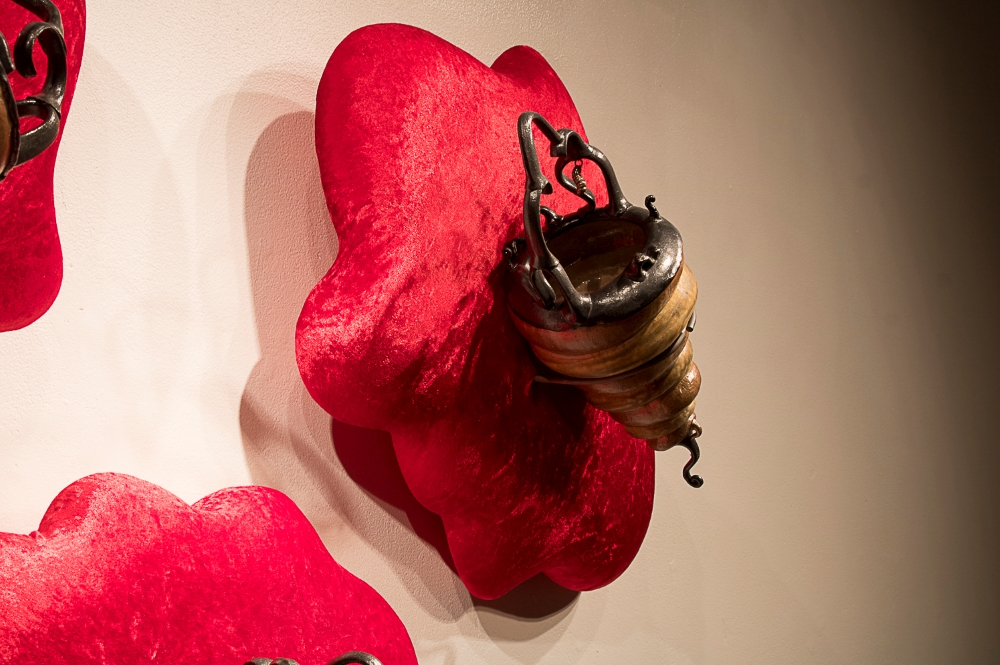
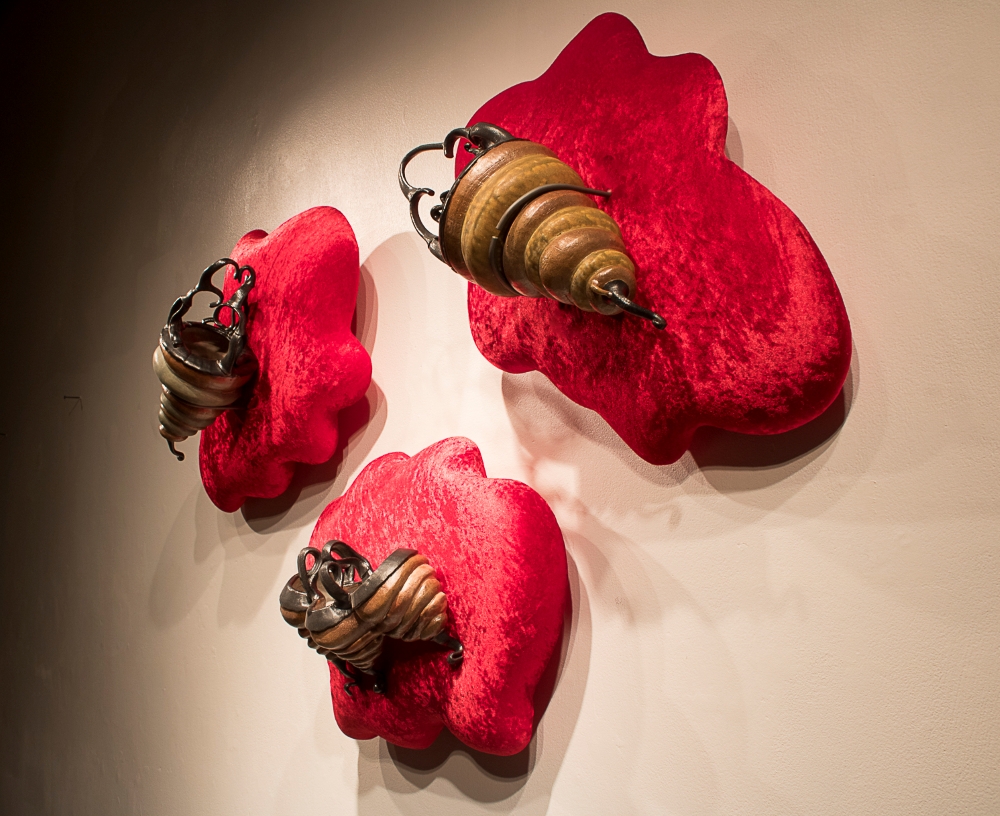
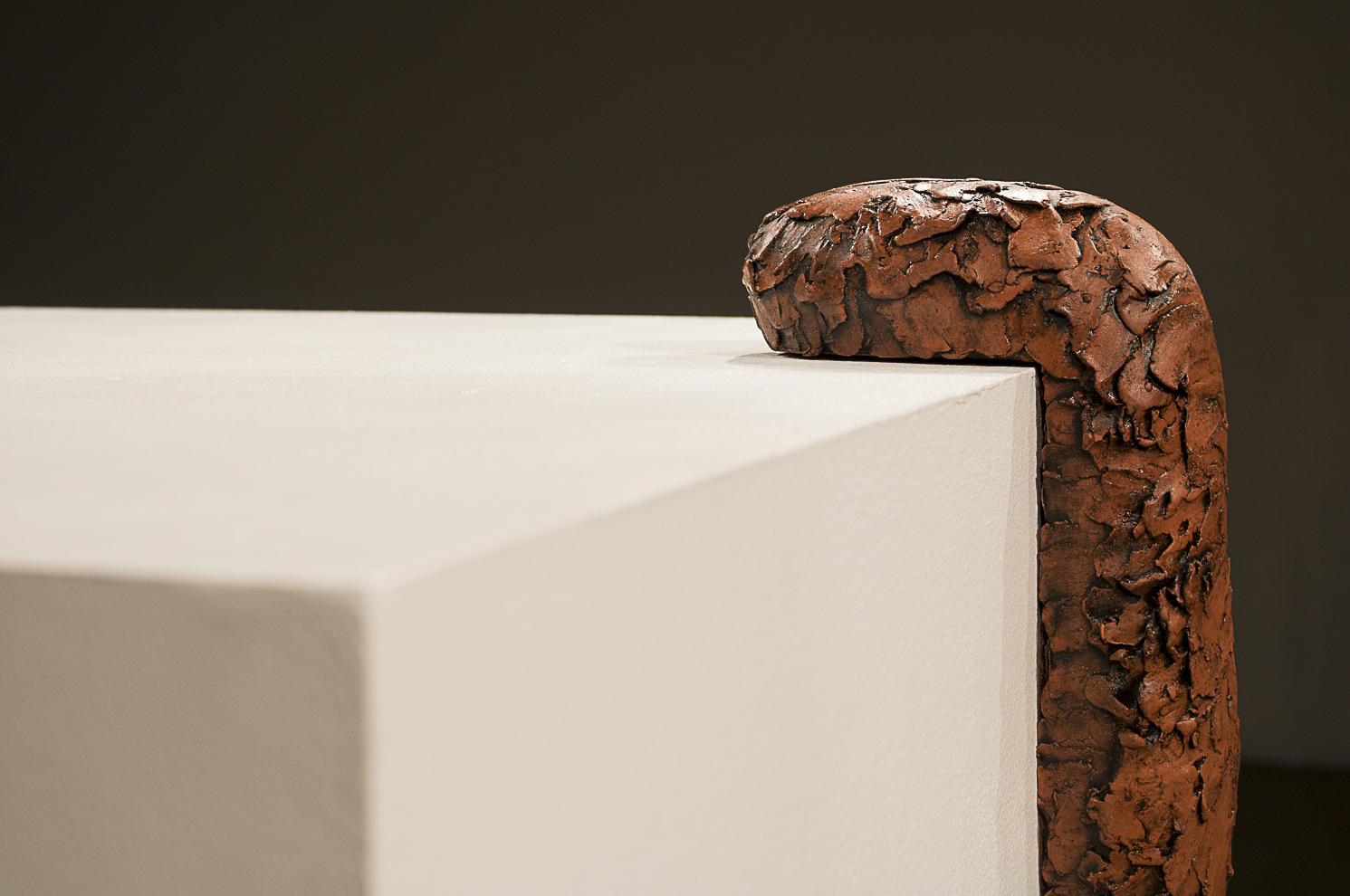
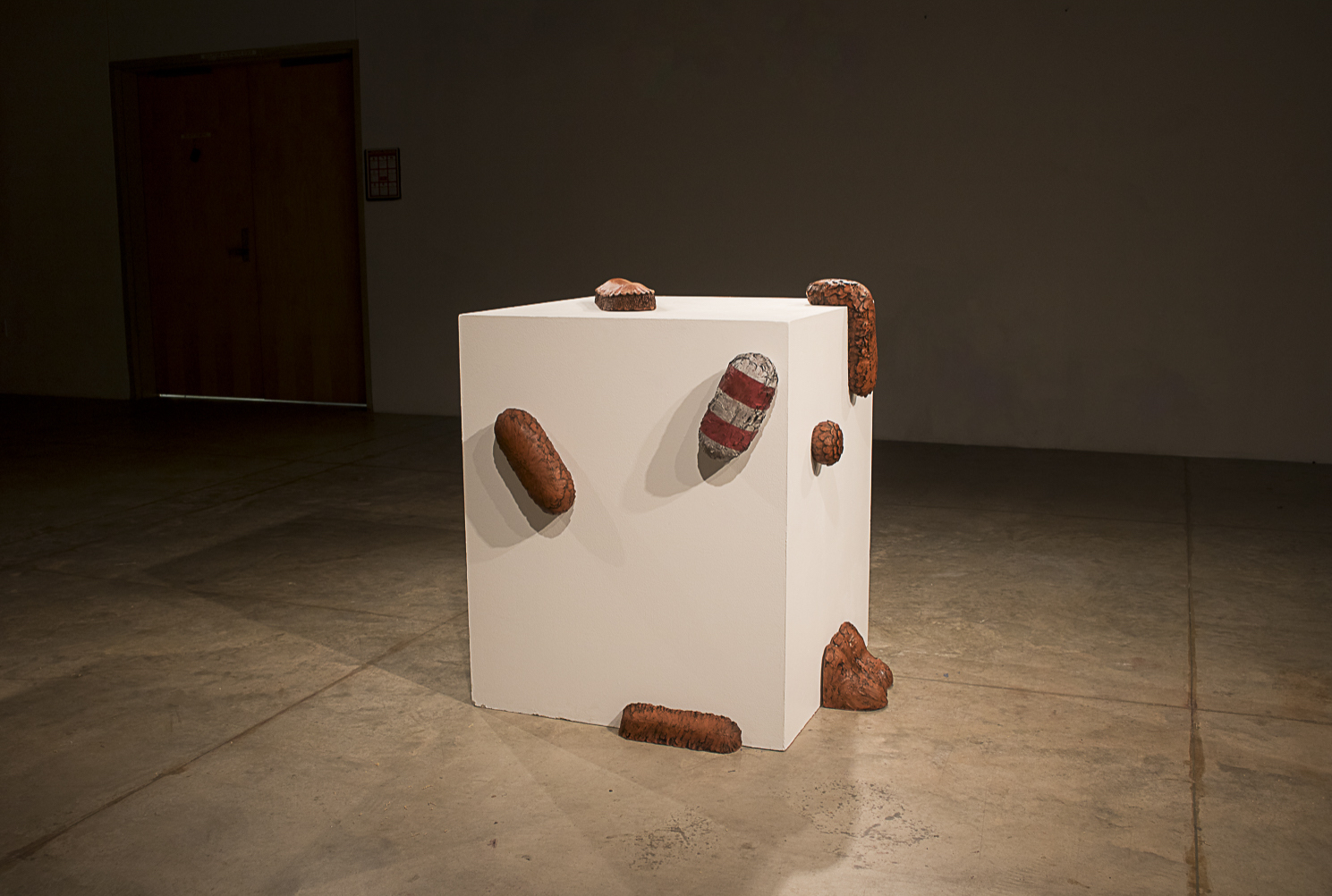
Pictured Above: Artwork by Hunter Marze: Baskets, 2025, ceramic, red velvet, steel rod, apx 26”x21” each; Outbreak, 2025, ceramic, dimensions variable
A Shared Experience of Growth
The CENART collaboration reflects a growing emphasis within the School of Art on international
exchange and professional development for students. For Juen and Marze, the chance
to meet artists and educators abroad represents a valuable step in their creative
journeys. “I’d like to see how artists from another country, especially ceramic artists,
are working in this kind of domain,” Marze said. “It’s all a valuable learning experience,
and an international exhibition on a resume is kind of a big deal.”
Juen added that she looks forward to connecting with the artists and community at CENART. “I’ve had the opportunity to work in a gallery at Texas Tech,” she said, “and I’m excited to go on this journey with my peers and classmates and see how things are run at CENART.”
Even for those not traveling, the project has created a sense of connection. Hopper reflected, “I knew I wanted our poster to be something that, even translated into Irish or Chinese or anywhere else in the world, could be accessible to anyone, and the issues we face here and care about could be understood.” Tucker added, “As an undergraduate student, getting to have an international exhibition experience this early in my career is incredible. I’m really thankful to Texas Tech for that opportunity.”
The exhibition unites a range of artistic practices from Texas Tech students: ceramics, performance, sculpture, and design - each reflecting the central idea of Disrupting the Horizon: exploring the imaginative possibilities of the horizon and the constraints that ground us in our human particularities.
Looking Beyond the Line
As the students prepare for the exhibition, their work also marks a personal horizon:
a chance to share what they’ve created, connect with new audiences, and step into
the next stage of their artistic journeys.
The horizon, as the curators describe, is not a fixed edge but a place of potential. For these Texas Tech artists, it represents both where they come from and where they are headed next.
Disrupting the Horizon: Human Gestures from the Texas Tech University School of Art opens this fall at the Centro Nacional de las Artes (CENART) in Mexico City, featuring selected works by students from Texas Tech’s School of Art.

Artwork by Courtney Juen: In My Own Remnants, 2023-2025, stoneware floor installation, dimensions variable. Incorporating jump
rope, 300lbs of stoneware clay, plastic, sewing pins, paracord, miscellaneous spring,
clamp light, corner of cinderblock, gallon bucket, and clay slip.
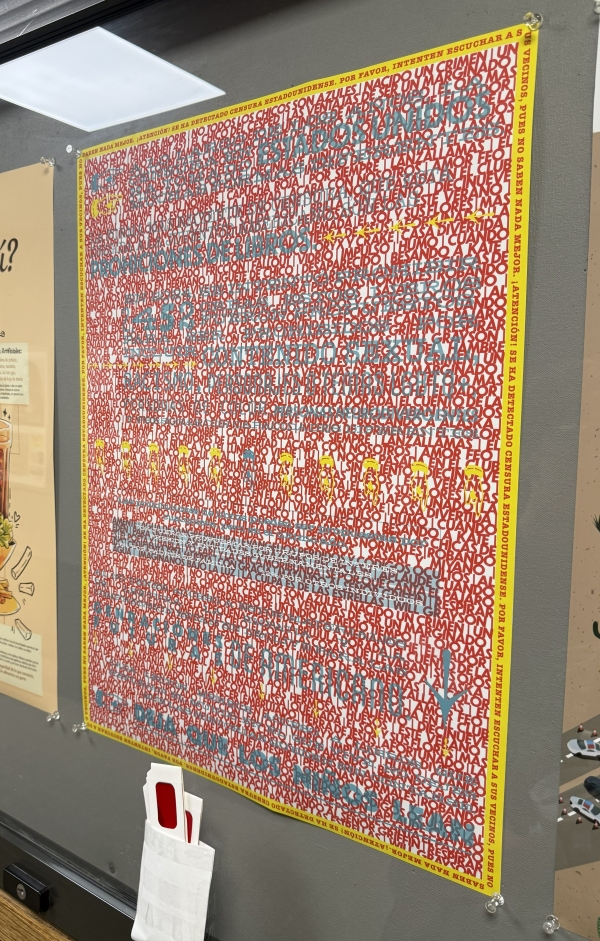
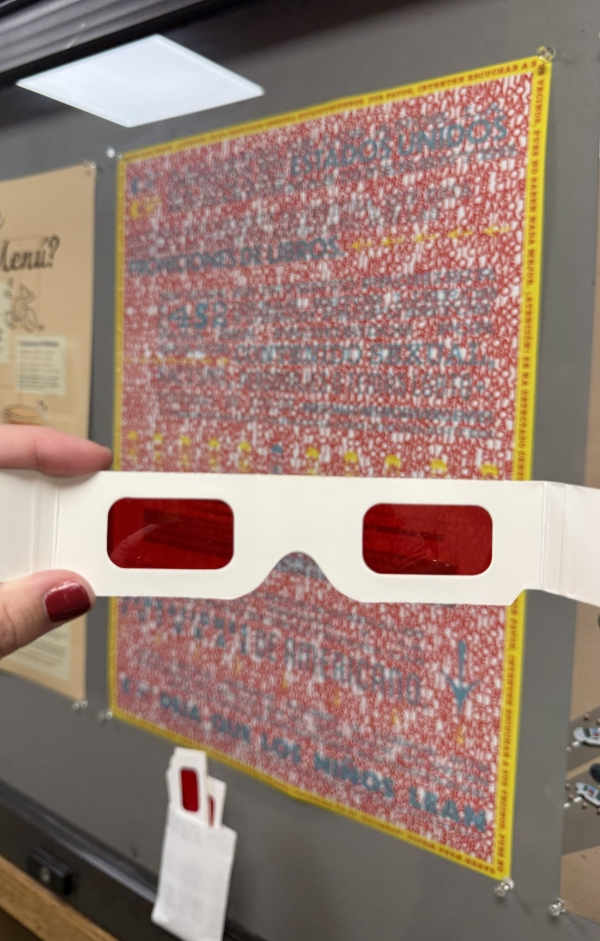
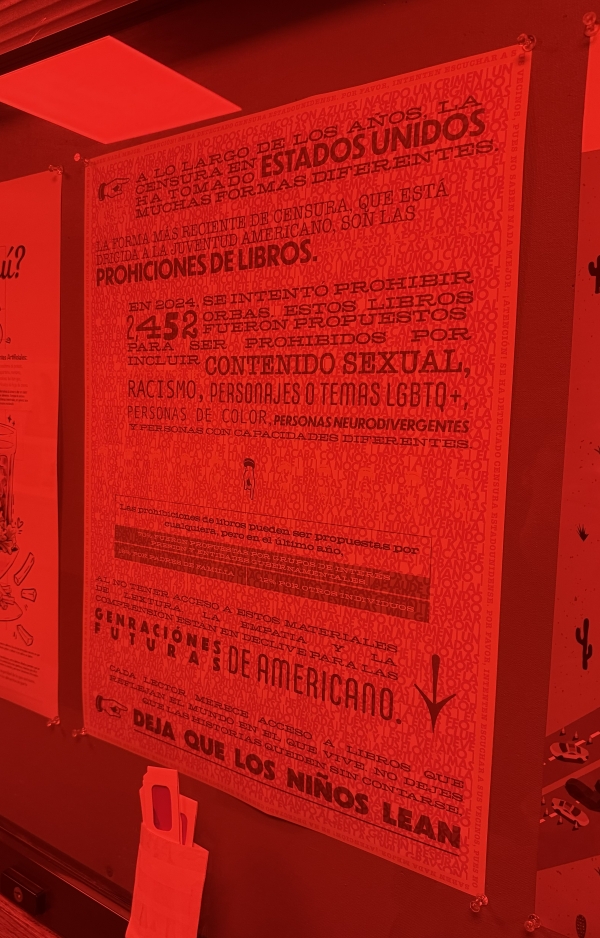
Pictured: Artwork by partners Madelyn Hopper and Rylee Tucker, Graphic Design 36”x48”
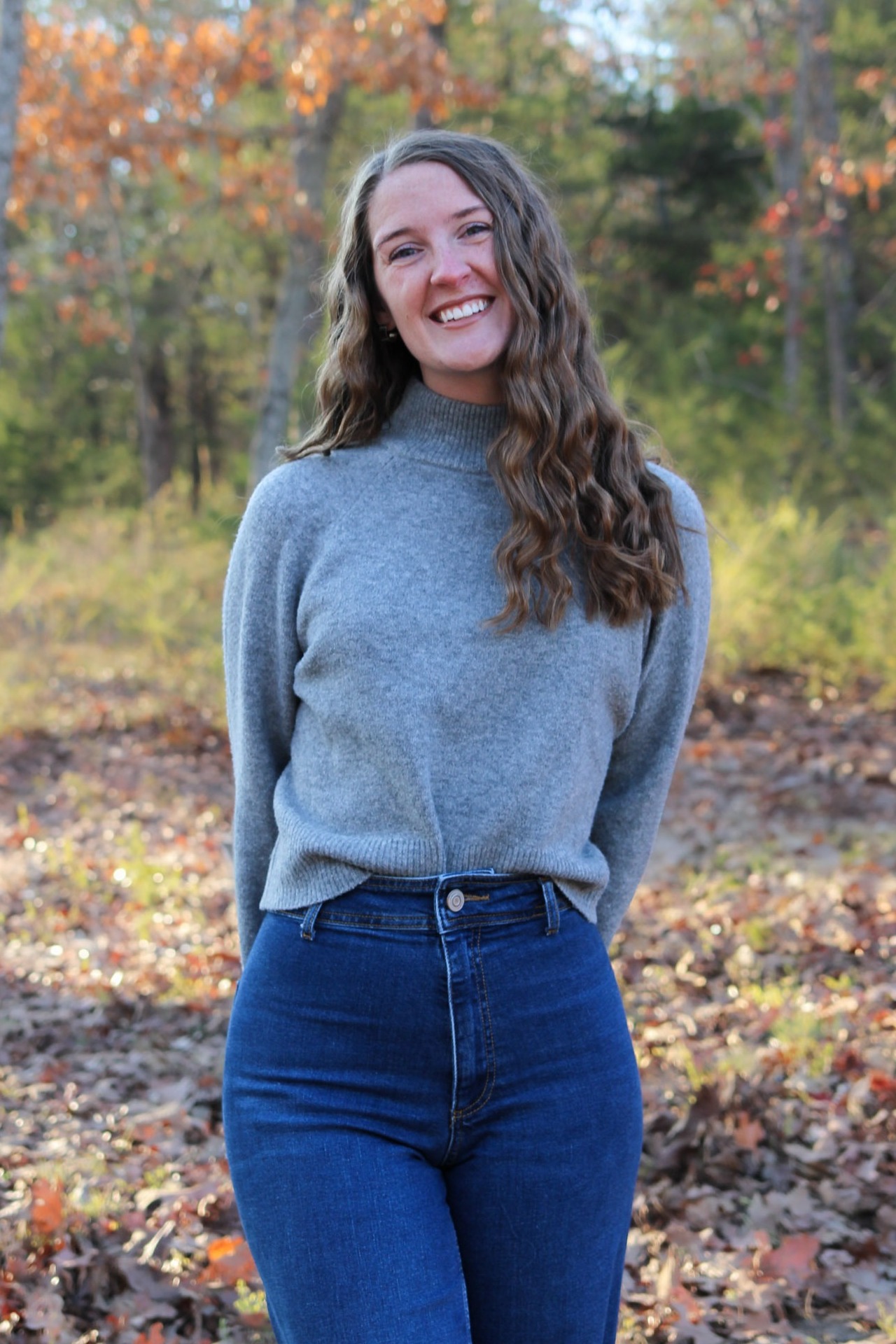
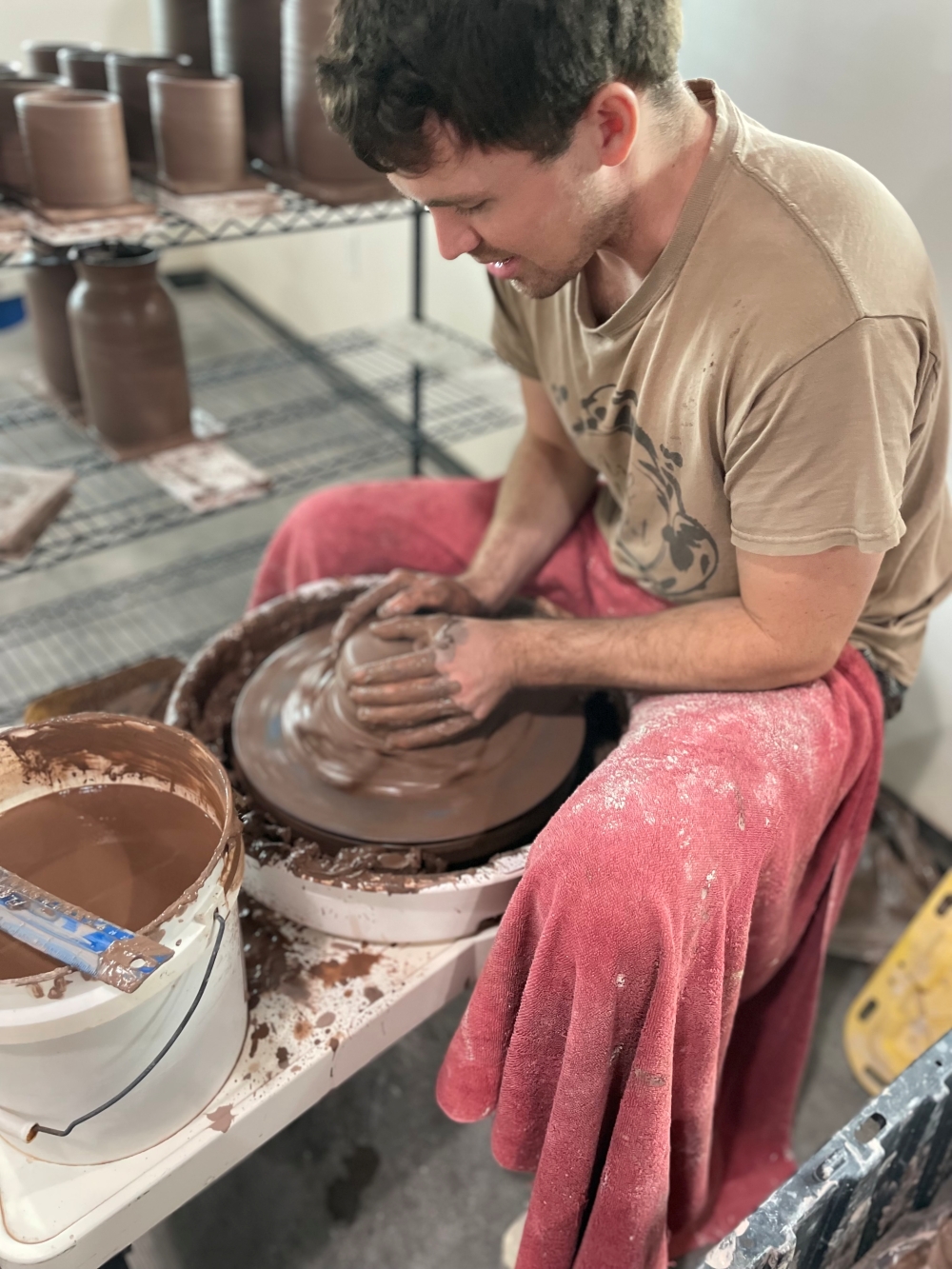
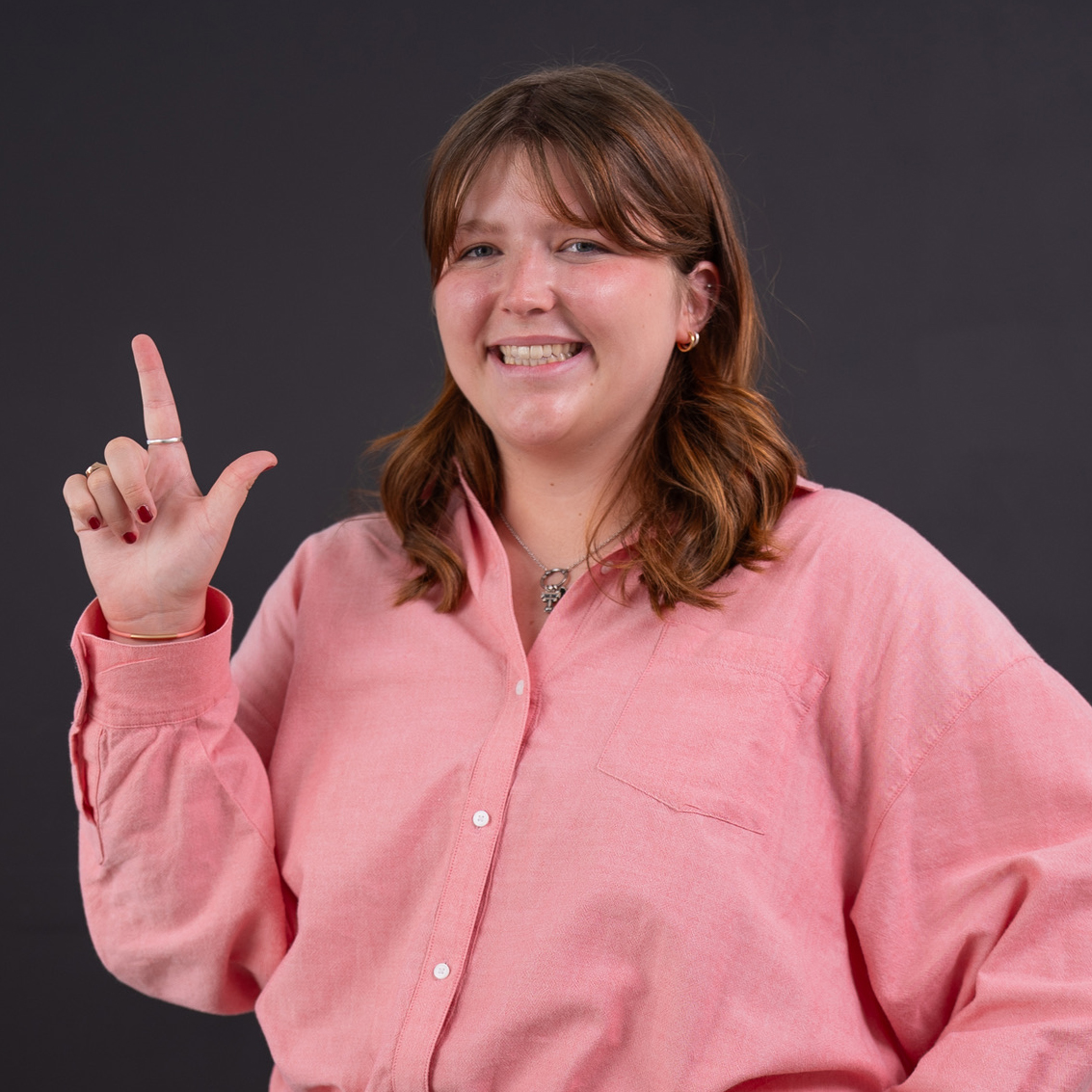
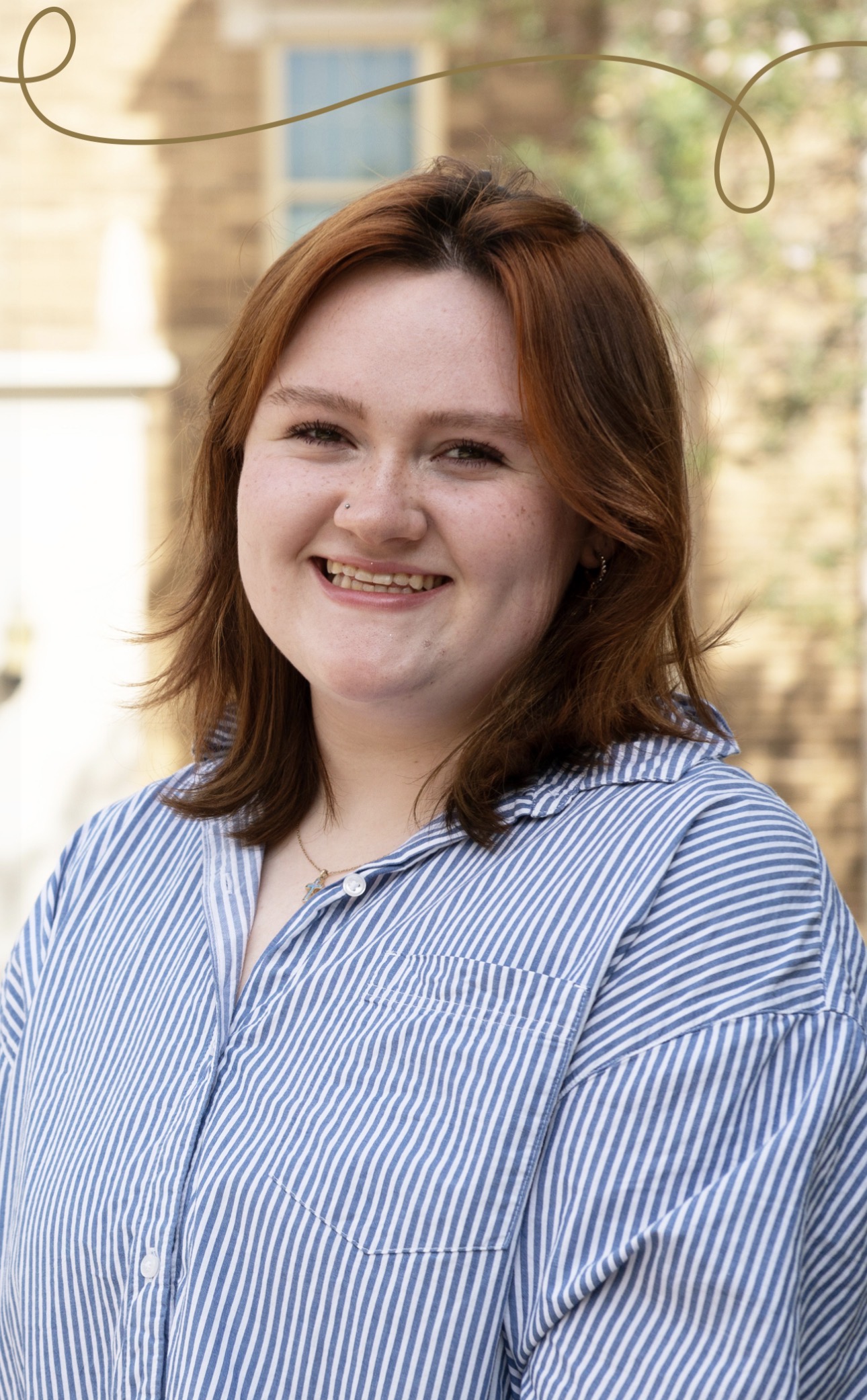
Pictured: Courtney Juen; Hunter Marze; Madelyn Hopper; Rylee Tucker
SCHOOL OF MUSIC
RISE & RESEARCH
Rise & Research is a Texas Tech University installment where cutting-edge discoveries are made as accessible as your morning coffee. This monthly feature offers a closer look at the transformative research happening on our campus.
Sarai Brinker on the Psychology of Lullubies
By Lucy Greenberg
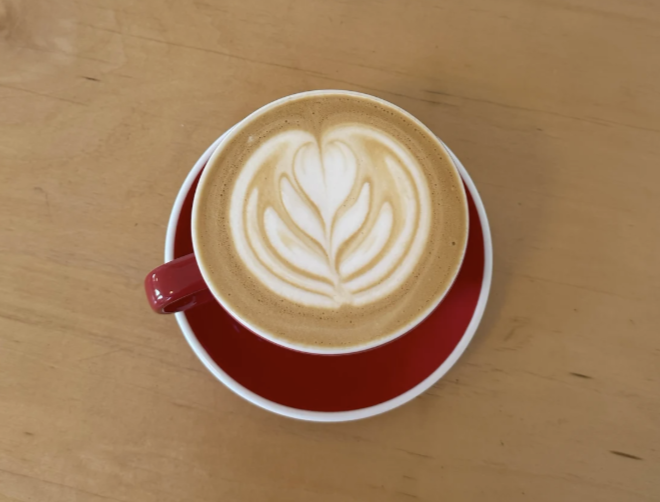
Sarai Brinker pulls up to Monomyth Coffee a little past 7 o’clock in the morning. She’s just dropped off her daughter at swim practice and is zeroed in on getting caffeine.
“I’ll take a vanilla latte, hot, please,” she says at the counter.
As we assess the menu, Brinker mentions to me that she tries to support local businesses as often as she can.
Overhearing, the barista taking the order grins.
Monomyth Coffee Co. was named the best independent coffee shop in the country by USA Today in 2024. Since then, it’s been increasingly hard to find an open table – but today we do.
Brinker recently turned down an offer to teach at a prestigious music school on the East Coast. She says she feels more useful here in Lubbock.
“Had I taken that job, I’d be packing this week,” she mused.
Instead, she is eager to bring new ideas to her classes at Texas Tech University. Brinker is the recipient of the Professing Excellence Award as well as the Texas Tech Spotlight Award.
Her doctoral degree in musicology examined the impact of integrated arts practices in prenatal education. This led to a partnership with Carnegie Hall’s Lullaby Project.
We talk about her research over lattes, a sweet bun and a kolache.
Q: Where did this interest in music and the bond between parents and their babies come from?
A: Part of my interest in the relationship between obstetric care, motherhood and music is an intersection of things I’ve lived through. I lost my mother when I was fairly young and my husband had a fellowship in obstetrics, so he’s been involved in the medical side. I was learning a lot about the challenges of caring for pregnant women watching him train and then becoming a mother myself without having one.
I’m also a musician, so when I was figuring out what to do with my dissertation (in musicology), there was a confluence of all these things happening, and I was just drawn to it.
I was thinking, ‘How can we use art, music and education to improve maternal wellness for pregnant women? What can we do? I designed a course to deliver prenatal education with arts interventions.
Q: Tell me about your research with the Lullaby Project.
SCHOOL OF THEATRE & DANCE
A STUDENT'S JOURNEY TO MUSIC DIRECTOR
By Monijesu Ebube
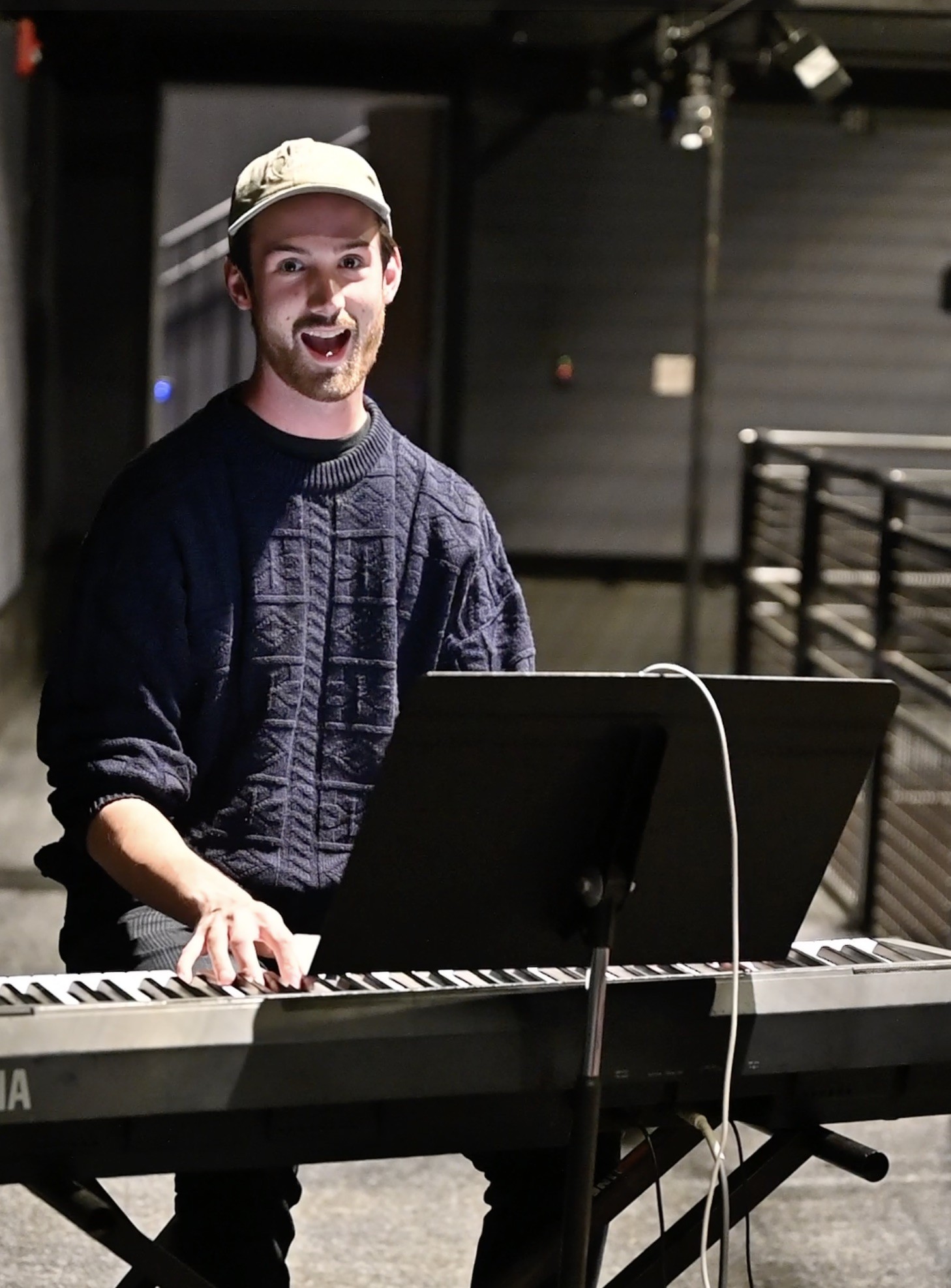
Pictured: Seb Archibald
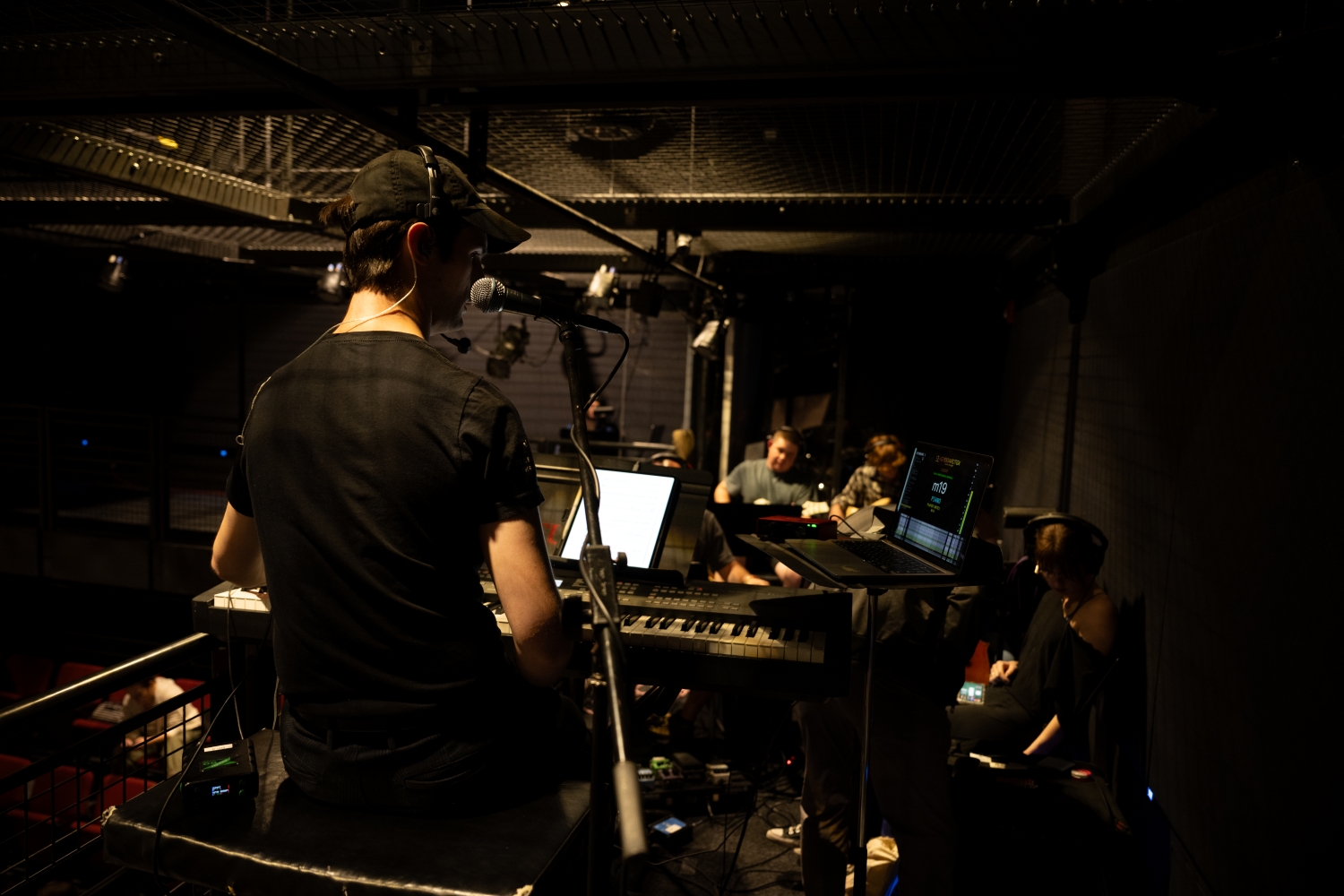
Pictured: Seb Archibald; Photo Credi: Constanza Romero
The recent production of Lizzie marked a pioneering moment in the School of Theatre & Dance as it featured—for the first time—a student serving as Music Director for a show inside the season. Sebastian (Seb) Archibald, a senior Musical Theatre major, stepped into this remarkable role, bringing his musicianship, leadership, and passion for collaboration to the punk-rock score.
The Journey to Leadership
Seb’s path to music directing began long before he arrived at Tech. “I’ve been music
directing since high school,” he shared. “The first big show I worked on was A Chorus
Line with a company back home in Dallas-Fort Worth. Shortly after that, I had the
opportunity to music direct Jekyll and Hyde with a cast of more than 26 people. That was the first time I really identified my
style of music direction.”
With a foundation in piano and percussion, Seb built both his technical skills and gained his confidence as a leader. On campus, he has served as Assistant Music Director for several productions, including last spring’s The Nerve of Minerva. When the School selected Lizzie for its season, faculty member Lydia Wagner reached out to him about stepping into the lead role. “Of course, I was thrilled,” Seb recalled. “It’s such an exciting challenge.”
Mentors and Influences
Throughout his training, Seb has drawn motivation from both his professional and academic
mentors. Growing up in DFW, he worked alongside experienced music directors in regional
theatre. At the School of Theatre & Dance, he credits MFA alum Brad Frenette with
stirring his love for the industry. “Working with Brad on Fly By Night—playing guitar and collaborating with the band—really helped shape who I am today,”
Seb explained. He also expressed gratitude to faculty who “have fostered these multi-faceted
arts that helped my craft as an actor, musician, and music director.”
The Challenge of LIZZIE
Lizzie, a punk-rock style of retelling the infamous story of Lizzie Borden and performed
with an all-female cast, is a colorful choice for the season.
For Seb, the musical offers both thrilling opportunities and unique challenges: “What excites me most is that this show highlights each performer. It’s rare to hear an all-female musical cast, and it’s powerful to give these women the space to express their rage in a punk-rock context. The challenge for me is directing voices that don’t resemble my own, creating space for collaboration while still shaping the sound we want.”
The demanding score features raw vocal energy, heavy harmonies, and intense musical textures. “This isn’t about sounding pretty,” he said. “It’s about telling the story honestly, even if that sound is rough or unconventional. That’s what makes it so exciting.”
Director’s Viewpoint
The director of Lizzie, Professor Lydia Wagner, emphasized the significance of Seb’s appointment.
“Seb is an exceptional musician,” said Wagner. “He plays multiple instruments, understands music deeply, and approaches the score with both skill and thoughtfulness. It felt like the right time in his undergraduate career to give him this opportunity.”
Wagner praised Seb’s leadership in rehearsals: “He leads the cast in music sessions and accompanies us daily. Since the show is almost entirely sung-through, having him in the room ensures we are building the show’s musical foundation from the very beginning.”
For the director, this collaboration is also about setting a precedent: “It shows students that there are many avenues in theatre beyond performance. It challenges them to ask: ‘What other skills can I bring to the table?’ Seb has proven himself ready for this responsibility, and I’m eager for his peers to see him succeed.”
Moving Forward
As he prepares for graduation, Seb views this moment as both a capstone and a springboard.
“I describe myself as a multifaceted performer—actor, musician, and music director,”
he said. “Working on Lizzie bolsters my confidence in music direction and gives me a professional experience
I can point to as I enter the industry.”
Ultimately, he hoped audiences would leave the theatre with more than just the thrill of a punk-rock score. “I want people to understand that these were real women, real lives, and real struggles,” he reflected. “If we can create a show that feels authentic both to the performers and to the people we’re representing, then we’ve done our job.”
As the School opened Lizzie on October 9, the excitement surrounding this debut was palpable. For Seb, it was a defining moment; for the program, it was a bold step forward in nurturing student leadership and expanding the possibilities of theatre-making.
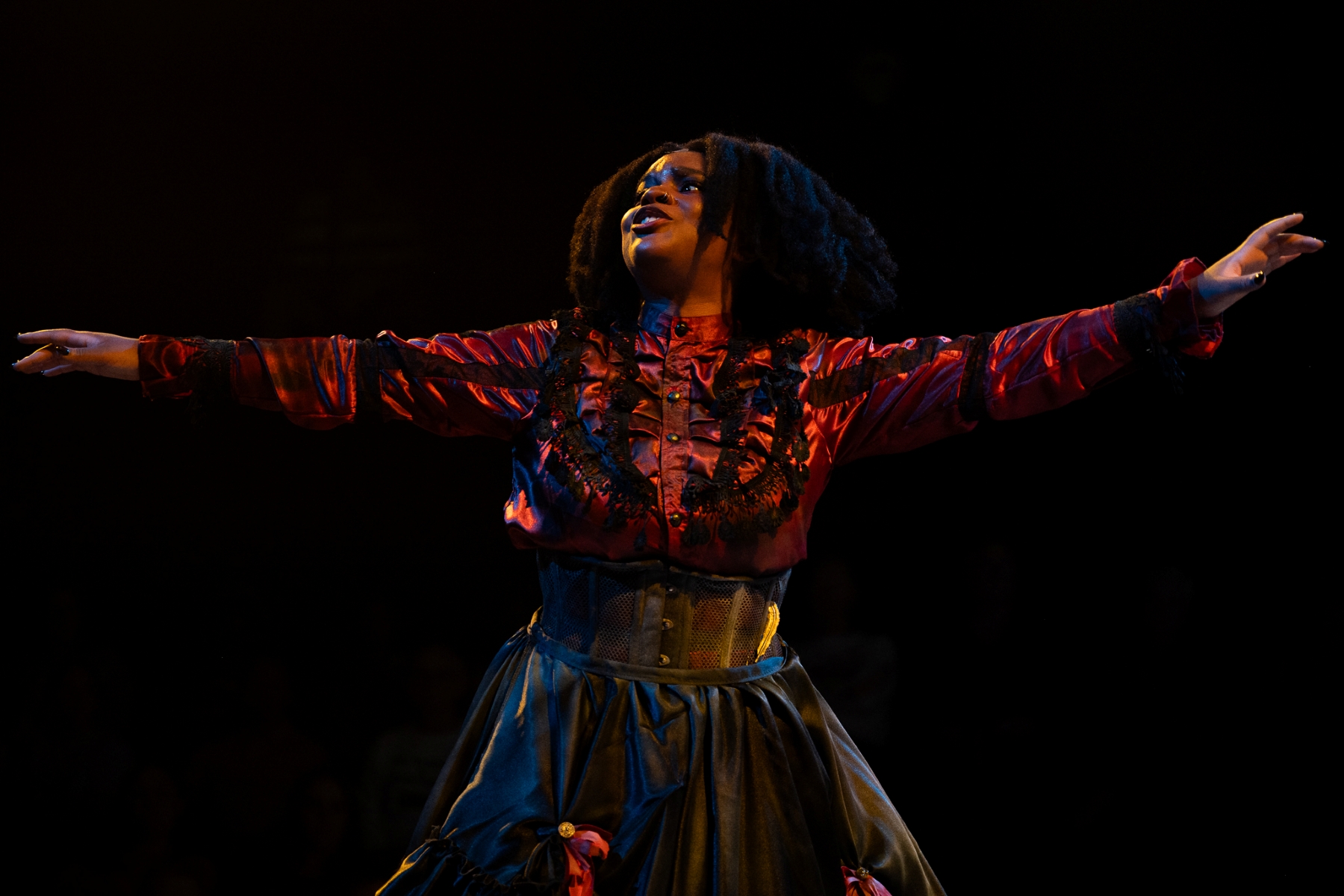
Pictured: Naomi Shoshanna Taylor as Lizzie Borden; Photo Credit: Zhora Gambarian
ALUMNI UPDATES
James W. Johnson ‘81 MFA
James was named to the West Texas Walk of Fame.
Greg White ‘07 PhD Fine Arts Theatre
Greg was cast as The Old Man in the 2025 national tour of A Christmas Story: The Musical and recently began rehearsals in NYC.
Brianna Burnett ‘08 MFA
Brianna co-created a Sherman, TX mural blending the city’s cultural history with Texas
Instruments’ impact on the community and semiconductor industry.
Heather Harris ‘19 BFA Acting
Heather celebrated her first feature film role in September for the film Him, produced by Jordan Peele’s Monkeypaw Productions and directed by Justin Tipping.
Alex Webster ‘20 MFA Performance & Pedagogy
Alex serves as co-chair of KCACTF Region VI, tours with Missoula Children’s Theatre,
and is Vice President of Transforma Theatre NYC, supporting recent Fringe Festival
work and preparing for upcoming tours to Boston, Washington and Lee, and New York.
Rachel Phillips ‘22 MFA Arts Administration
In the spring, Rachel left the Eugene O’Neill Theatre Center to accept the position
of Associate Director of Marketing for Hartford Stage.
Hannah Bahlmann ‘23 MA Art History
Hannah curated her second solo exhibition as Art Preparator and Gallery Manager at
the University of North Dakota Art Collections.
Kaiti Fortenberry ‘24 MA Art History
Kaiti was hired as a full-time Archival Associate in the Southwest Collection Archives
at Texas Tech University.
Samara Shavrick ‘24 BFA Theatre
After her first contract with Disney Cruise Lines, Samara booked five consecutive
South Florida shows—starting with The Marvelous Wonderettes and concluding with Camelot and The Cher Show—and also works with an organization bringing dance into local schools.
Becca Worthington ‘24 BFA Musical Theatre
Becca appears as “Jess” in the new film Everything to Me and is now directing Channeling Our Ancestors, a project by Indigenous artists at
the Tulsa Performing Arts Center.
Austin Dean Ashford ‘25 PhD Fine Arts
Austin was appointed as the inaugural artistic director of Flanner House Arts in Indianapolis,
IN.
BONUS CONTENT
Pictured: Art 1100 Wall Mural located in the Ruckus
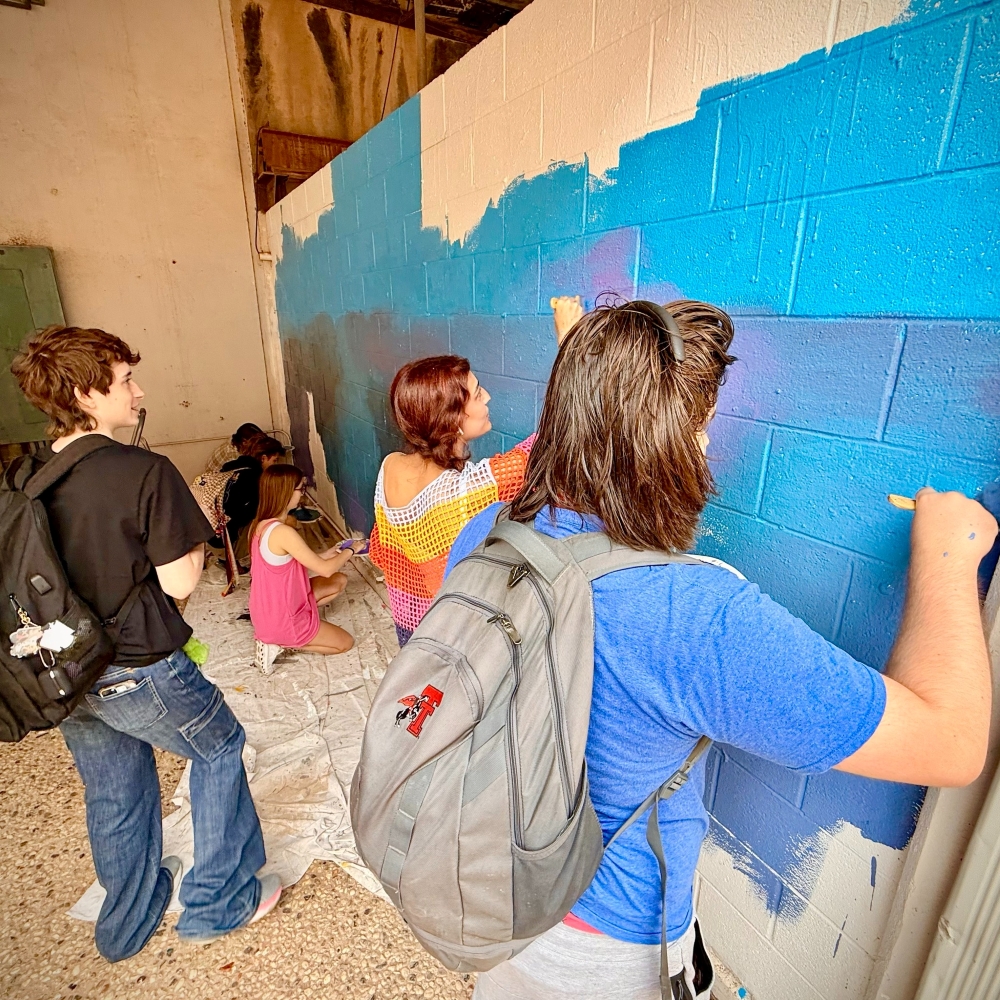
Pictured: Art 1100 students paint the base colors for the new mural
Now in its second year, the School of Art Mural has already become a standout visual tradition. Each fall, Art 1100 students transform a wall in the Ruckus, the School of Art’s repurposed former kiln and sculpture yard, with a collaborative installation. This year’s class, led by SOA Director Monika Meler, designed individual works on paper and installed them using wheat paste. The result is a layered, graffiti-inspired mural that brings fresh color and texture to our reimagined space.
The new mural debuted at the 2nd Annual SOA Mural Bash on October 10, where students, faculty, and staff celebrated with food, games, and prizes.
Everyone is invited to stop by and enjoy this imaginative space.
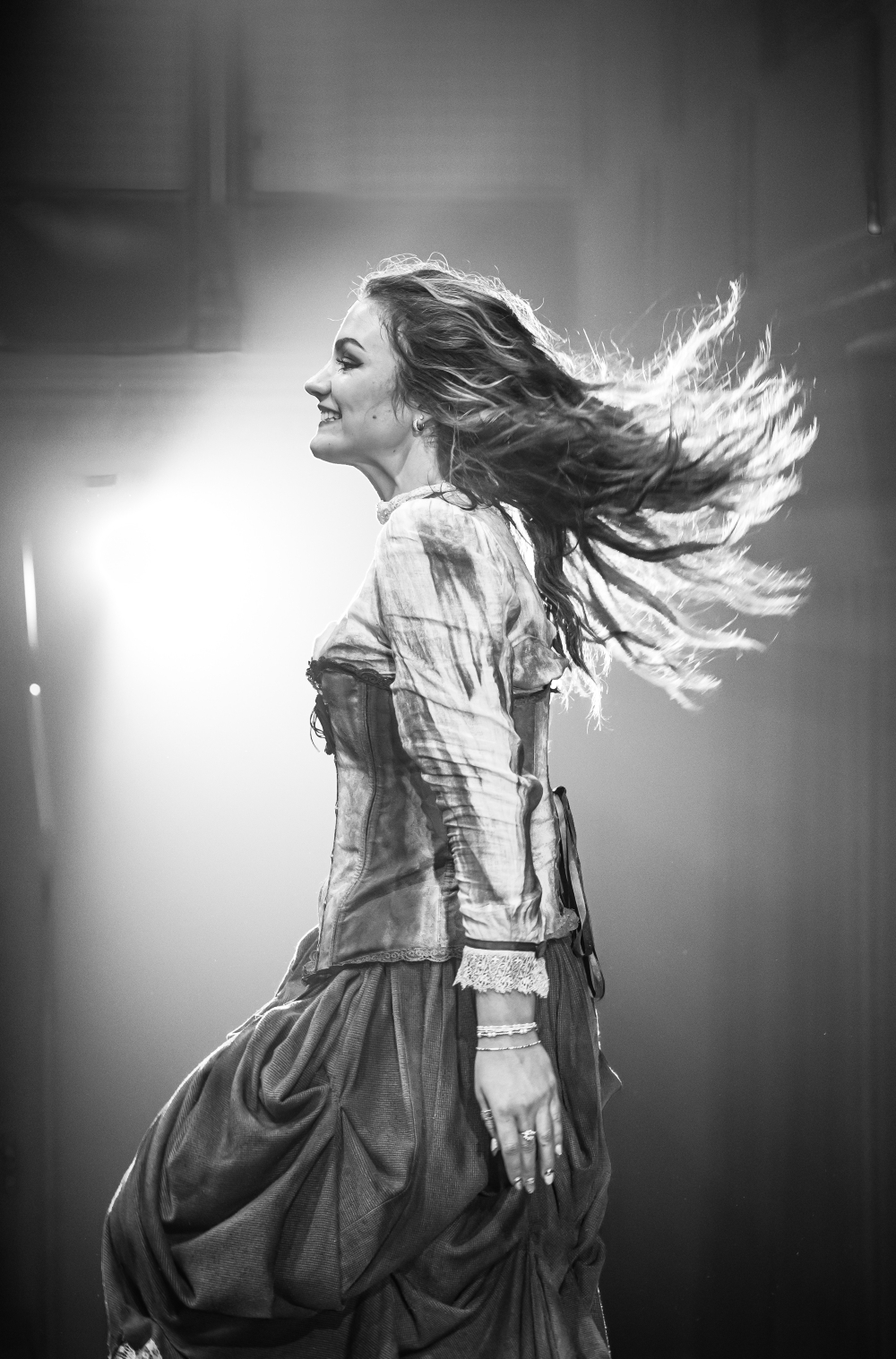
Pictured: Norah Catherine Jewett as Bridget Sullivan in the production of Lizzie;
Photo Credit: Diego Rodarte
Norah Catherine Jewett, a third year student pursuing her BFA in Musical Theatre, played the part of Bridget Sullivan in the recent production of Lizzie.
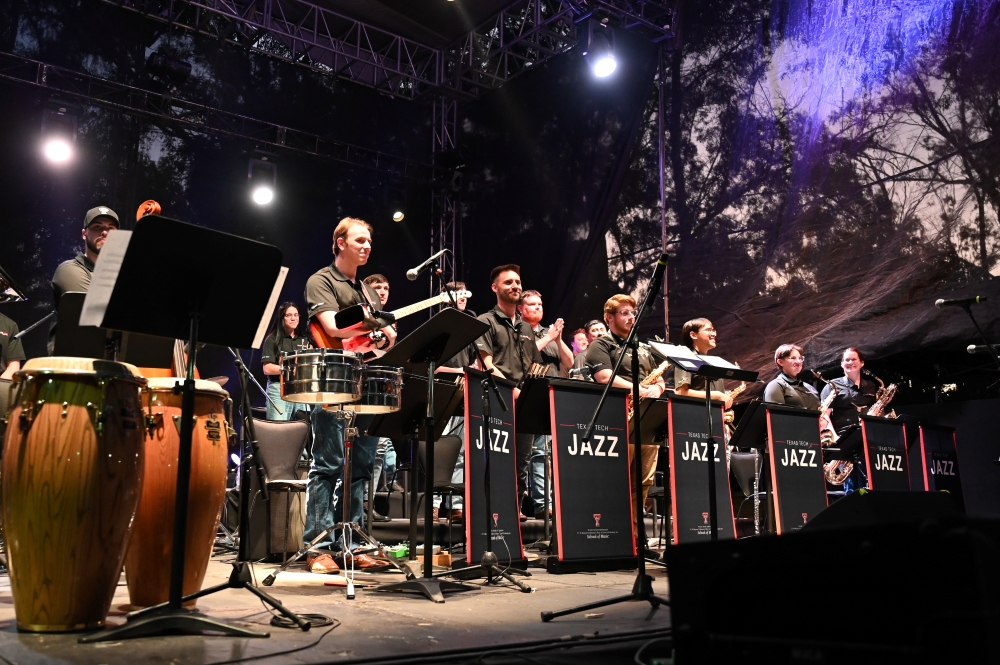
Pictured: Texas Tech Jazz Ensemble stands to receive standing ovation

Pictured: Entire Texas Tech group at the Euro Jazz Festival
The Texas Tech Jazz Orchestra and Jazz faculty recently returned from a tour in Mexico City, where they performed at the 2025 Festival EuroJazz. Taking the stage before a packed audience, the ensemble delivered a high-energy performance. Their performance was met with a full standing ovation, prompting the crowd to call them back for three additional pieces. The tour marked a celebratory moment for the ensemble, showcasing their talent on an international platform.
TTU Arts
-
Address
School of Theatre & Dance Building | Box 45060 | 2812 18th Street STE 222 | Lubbock TX 79409 -
Phone
806.742.0700 -
Email
tcvpa@ttu.edu

